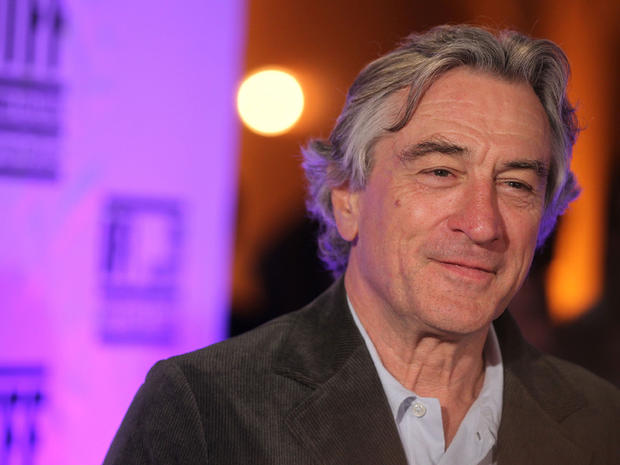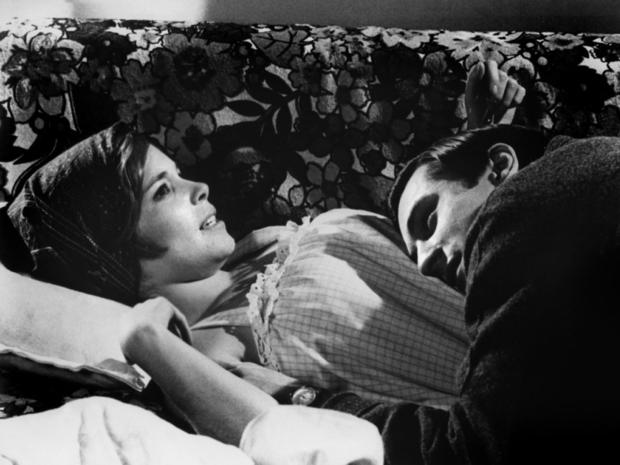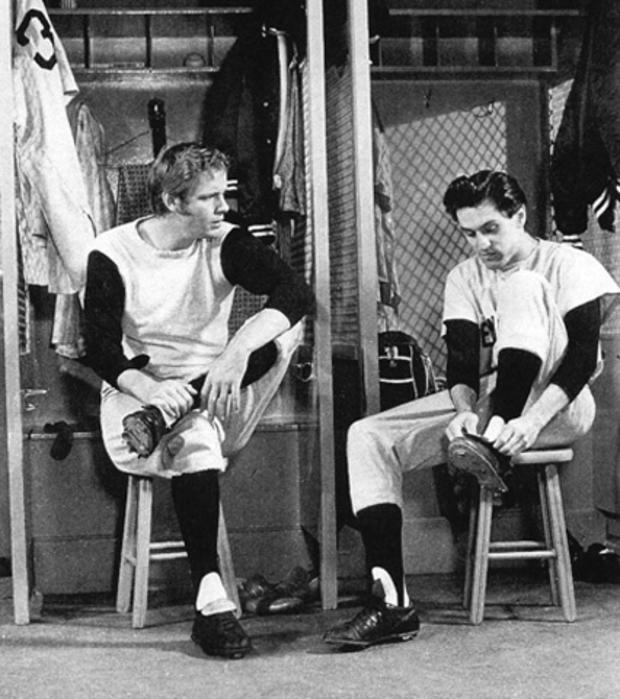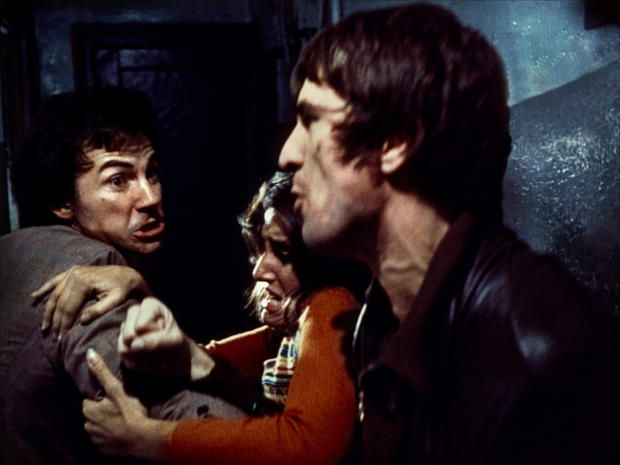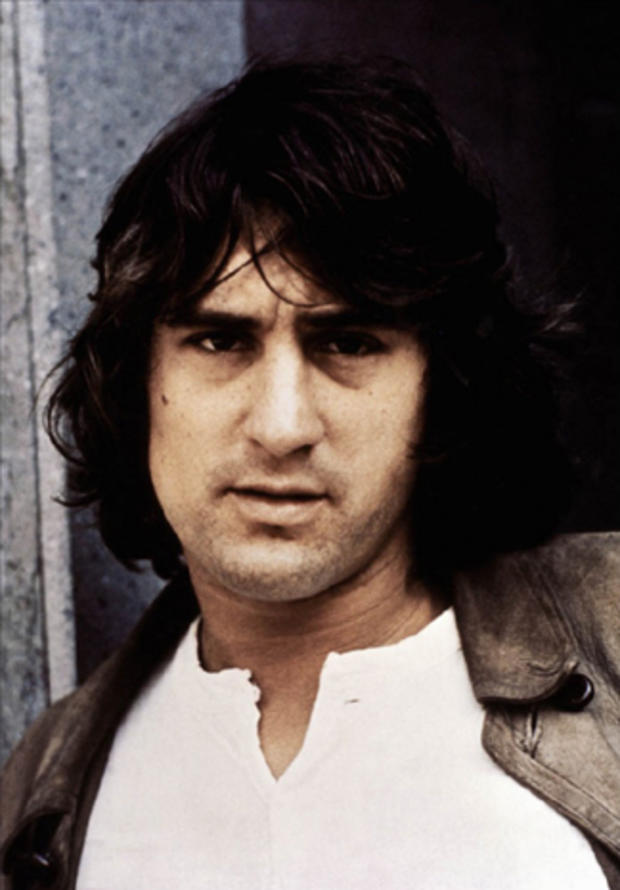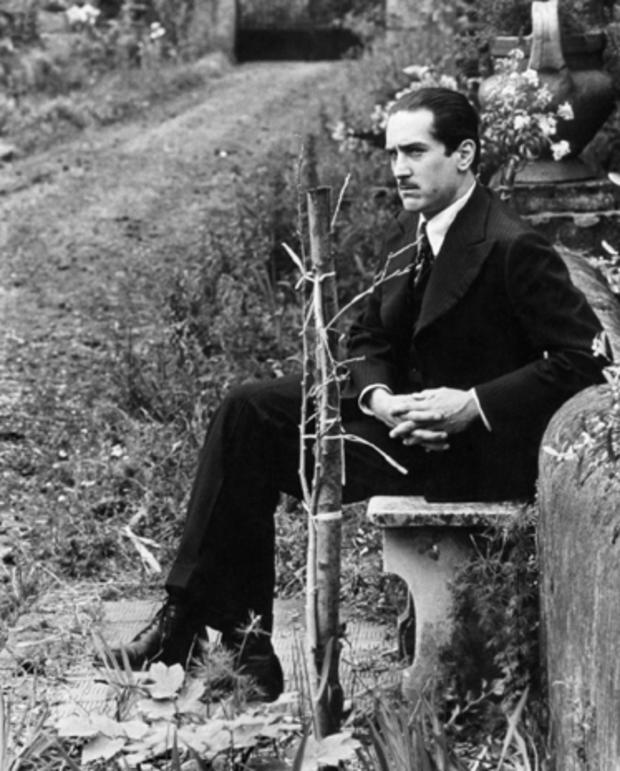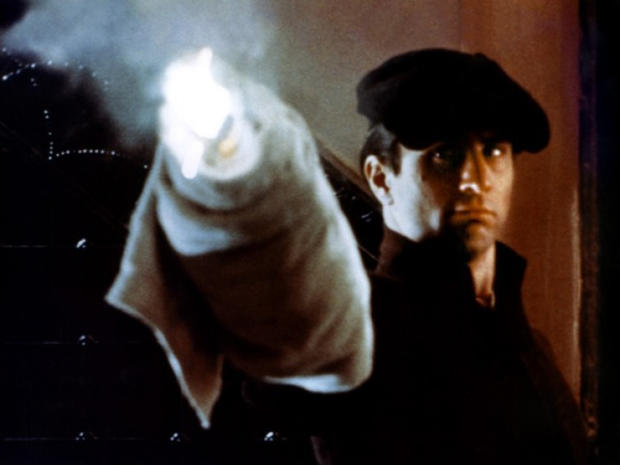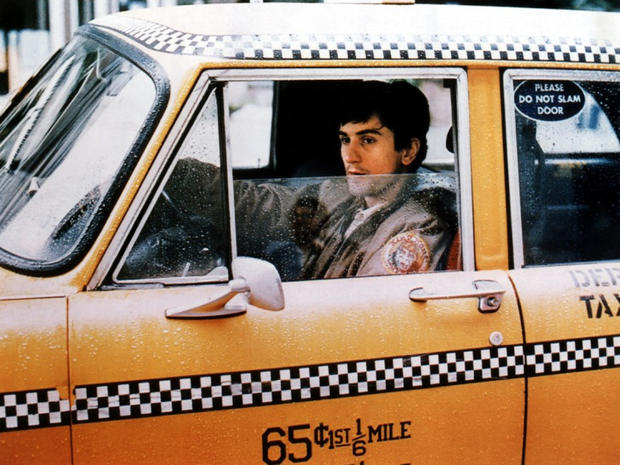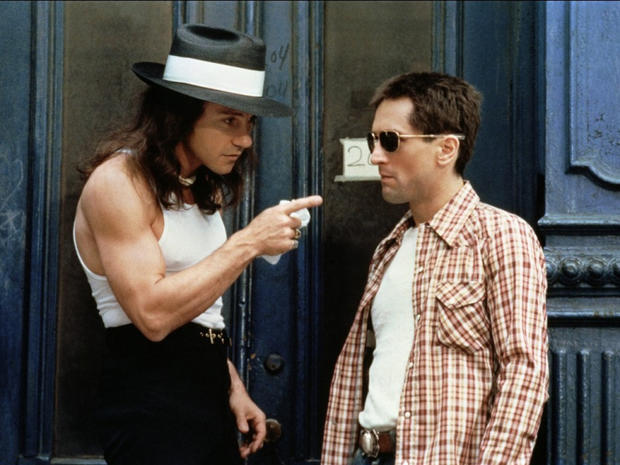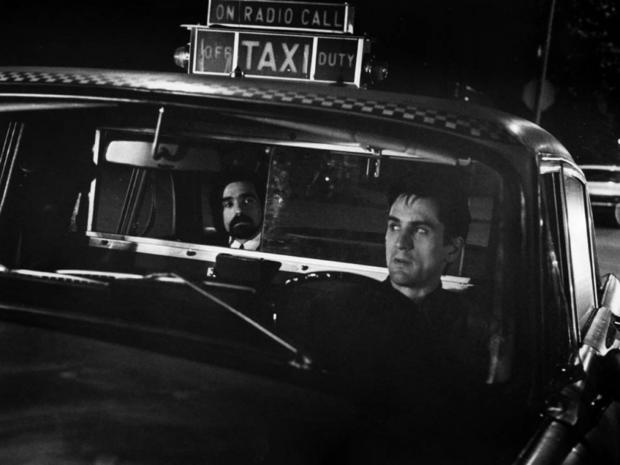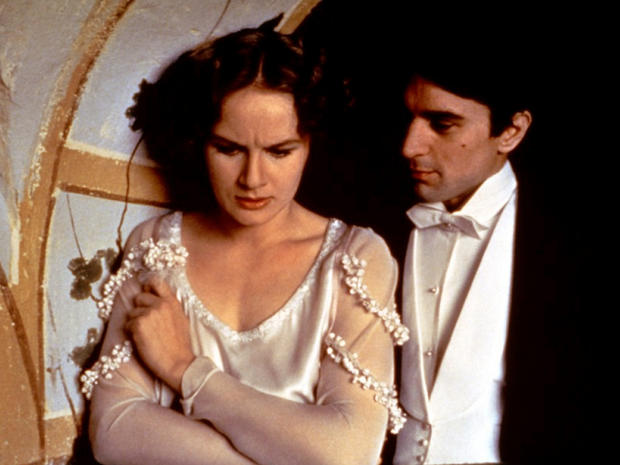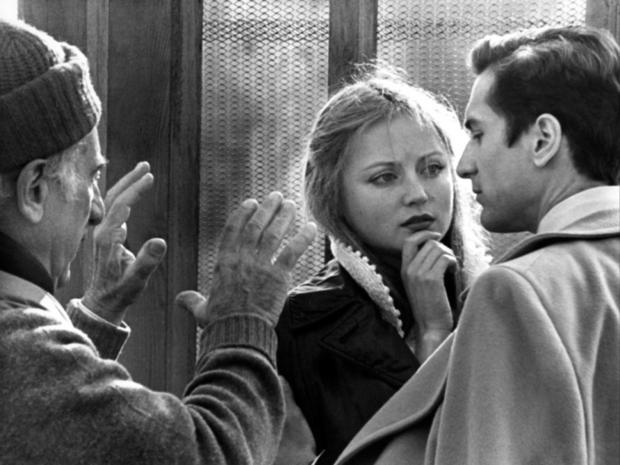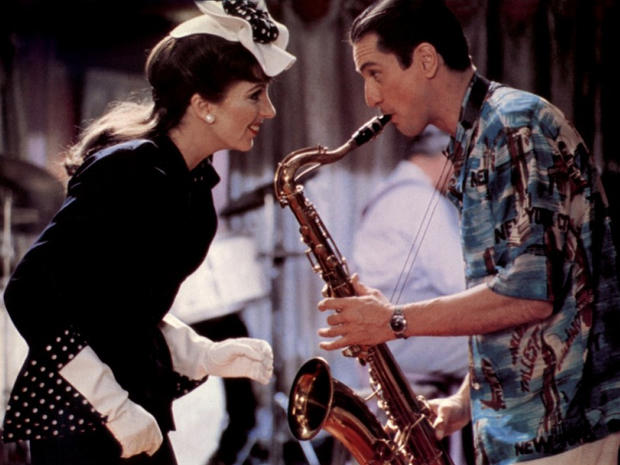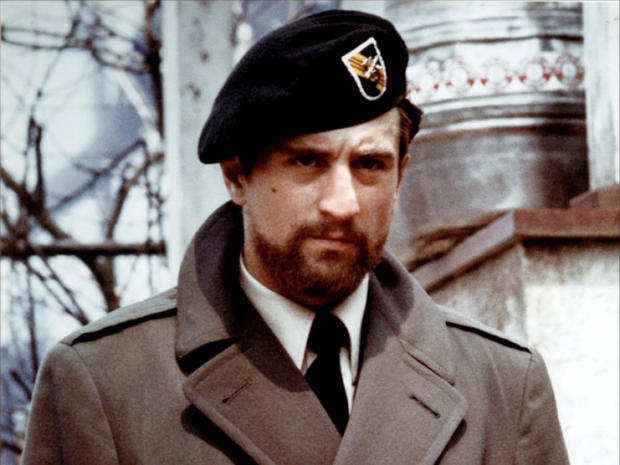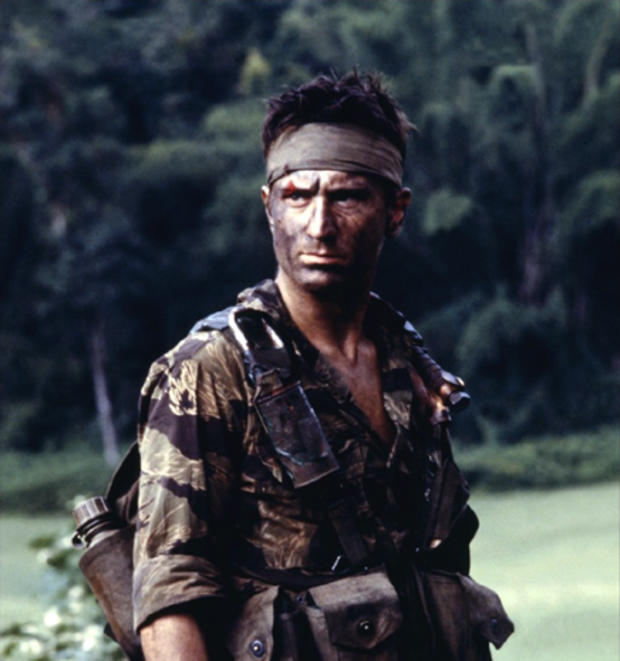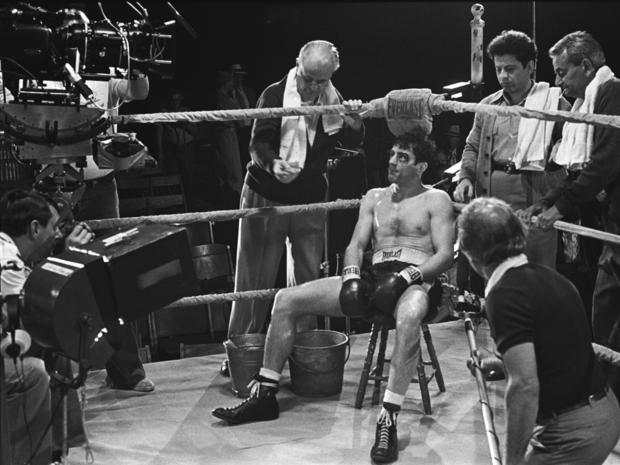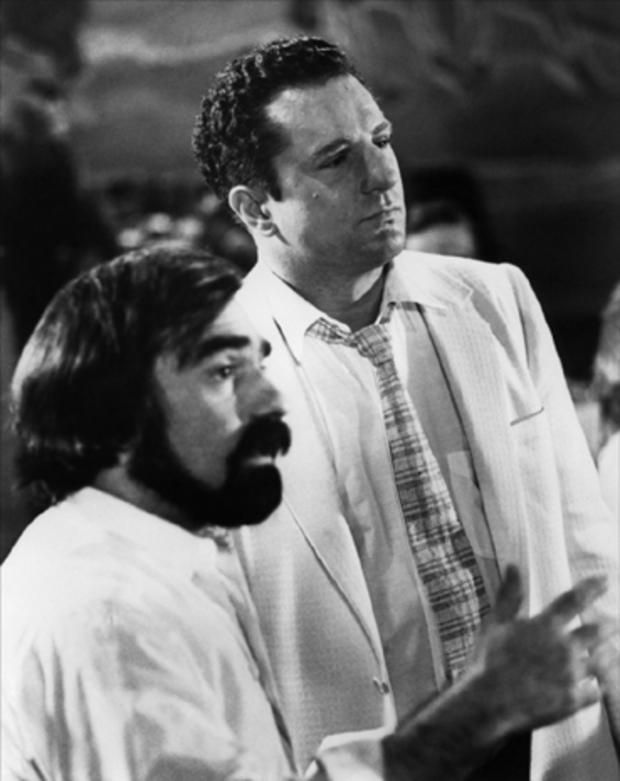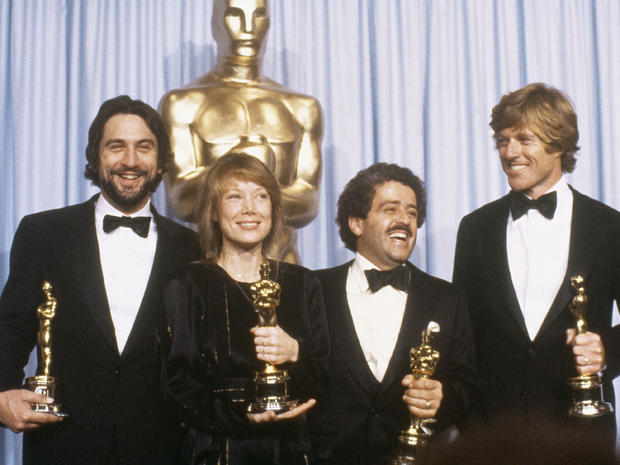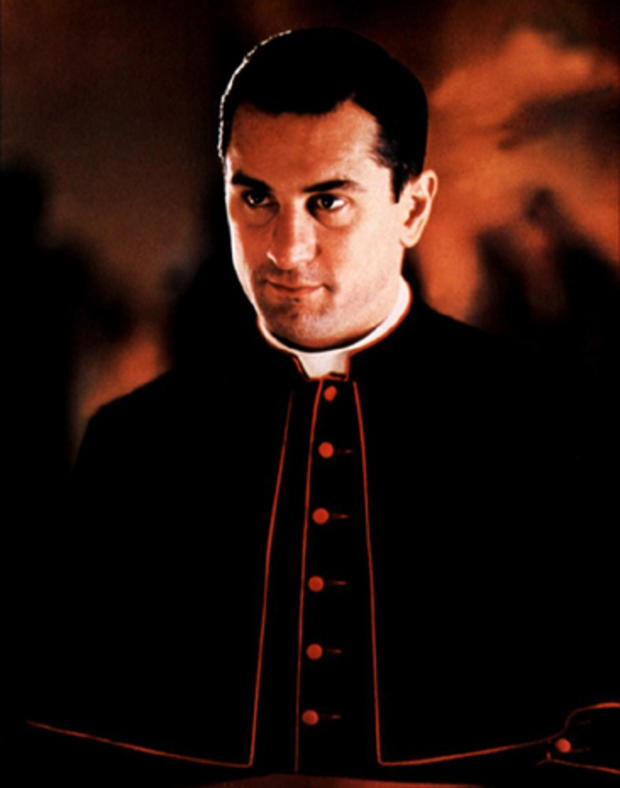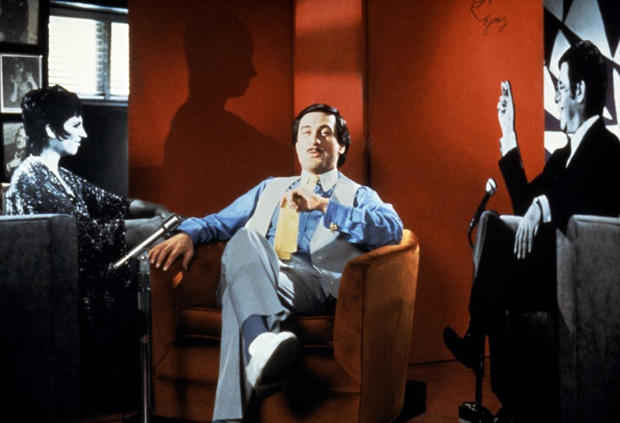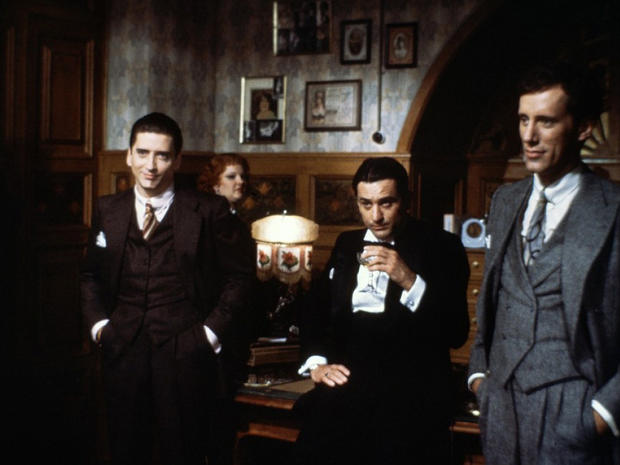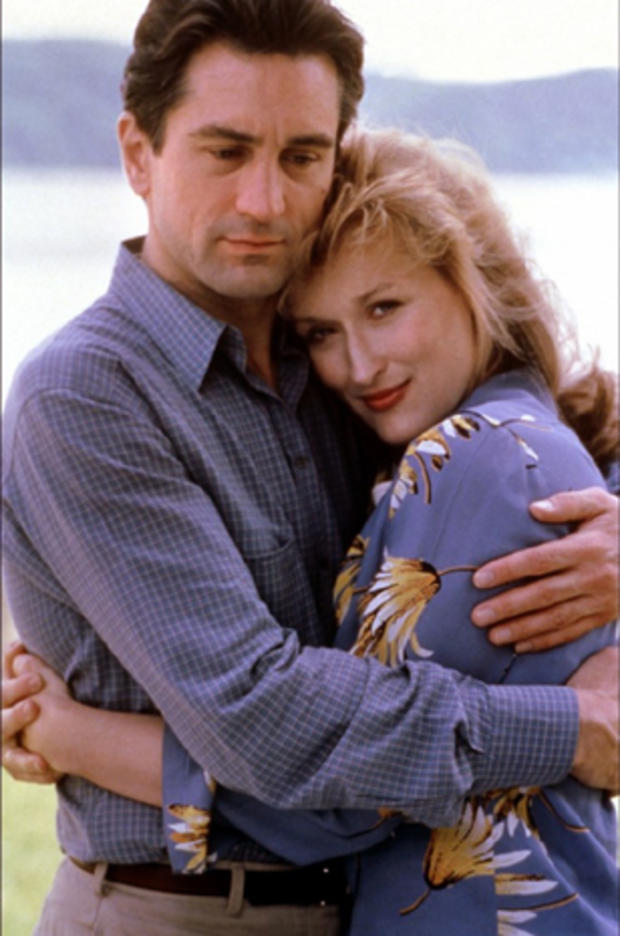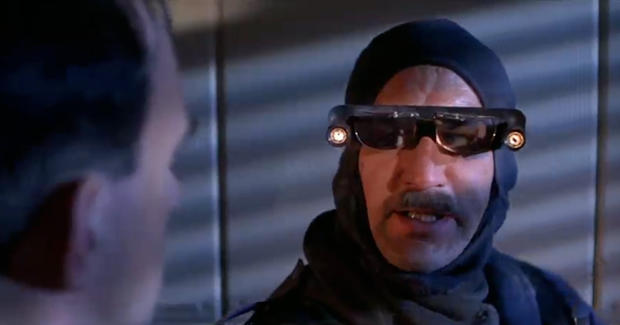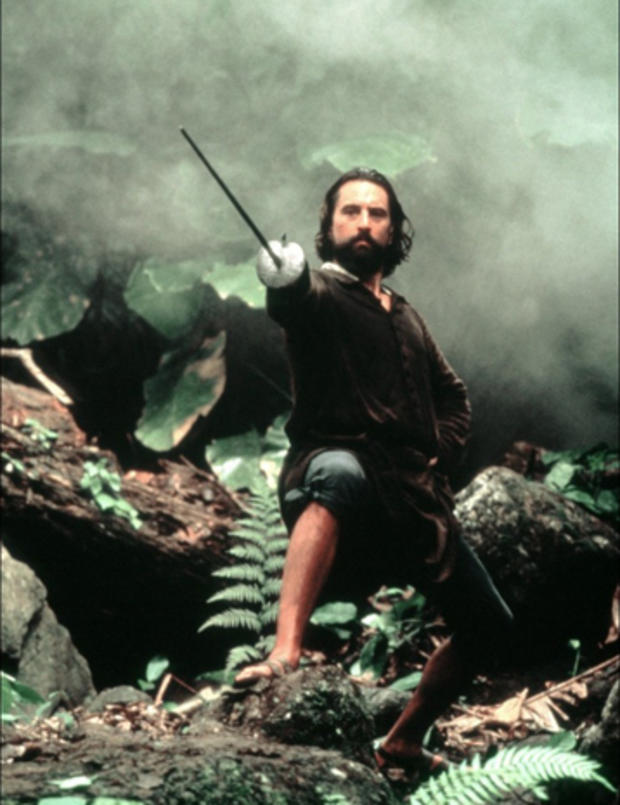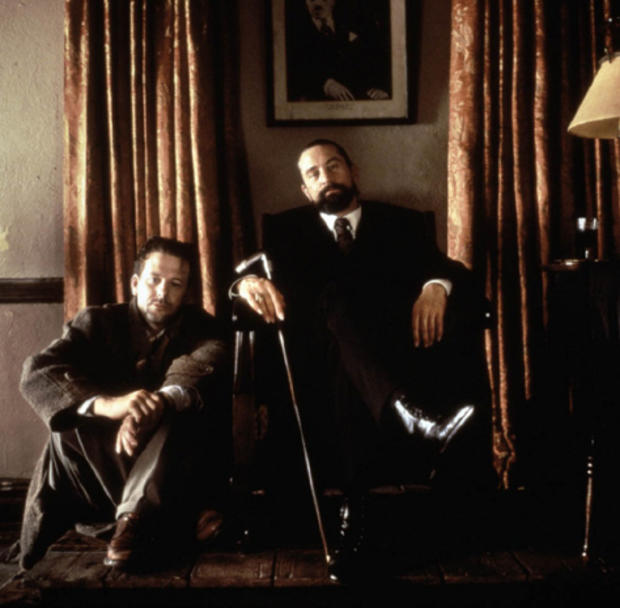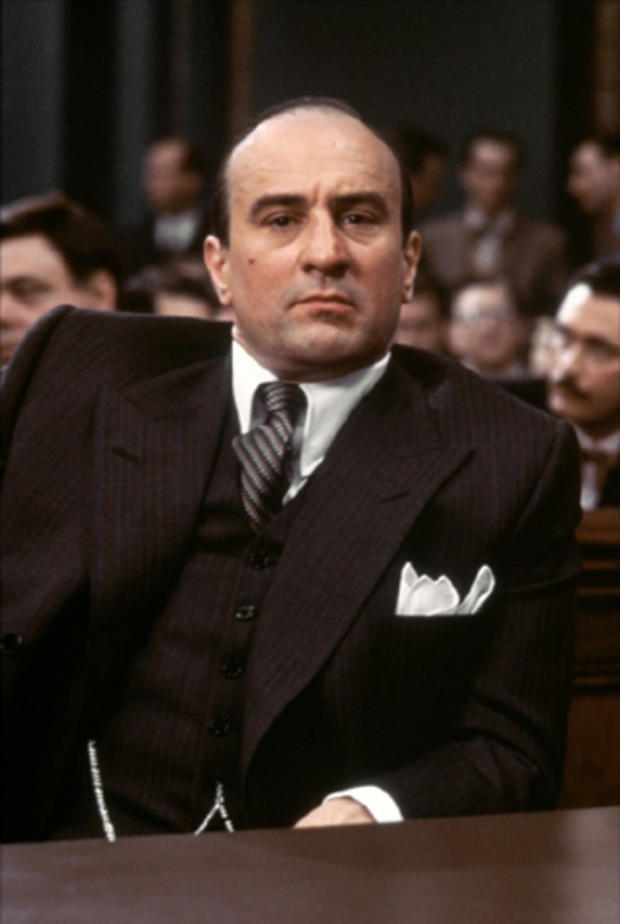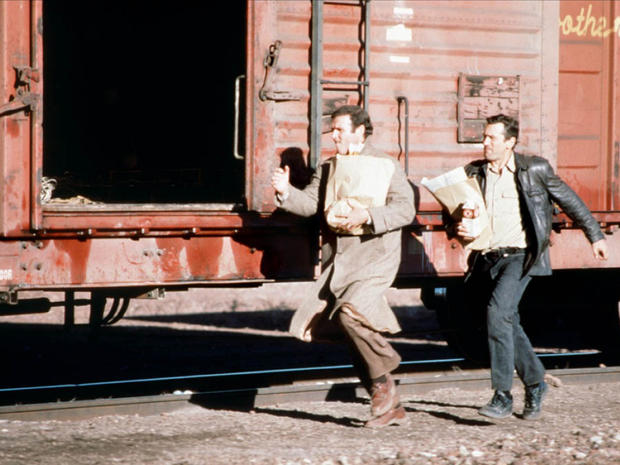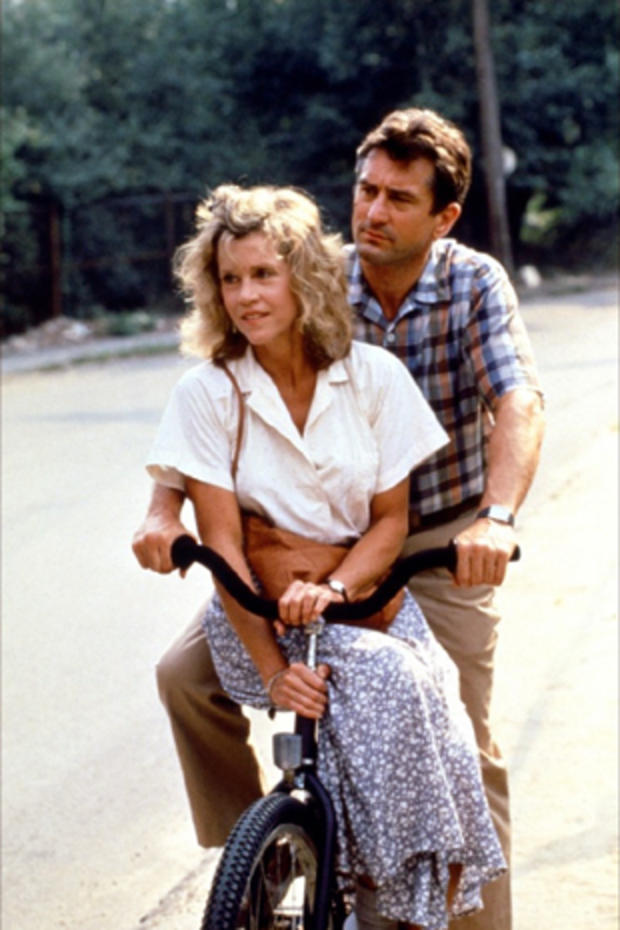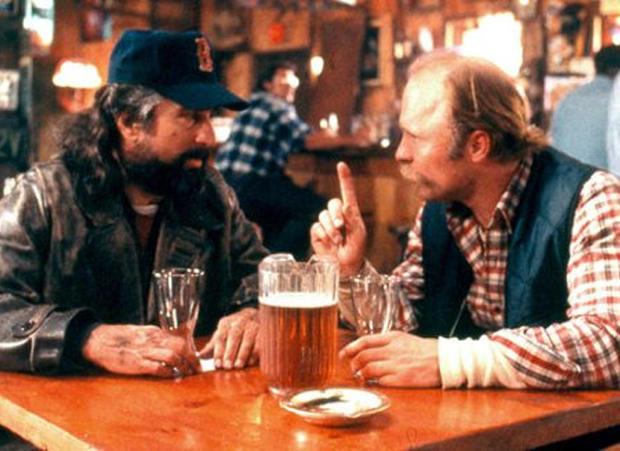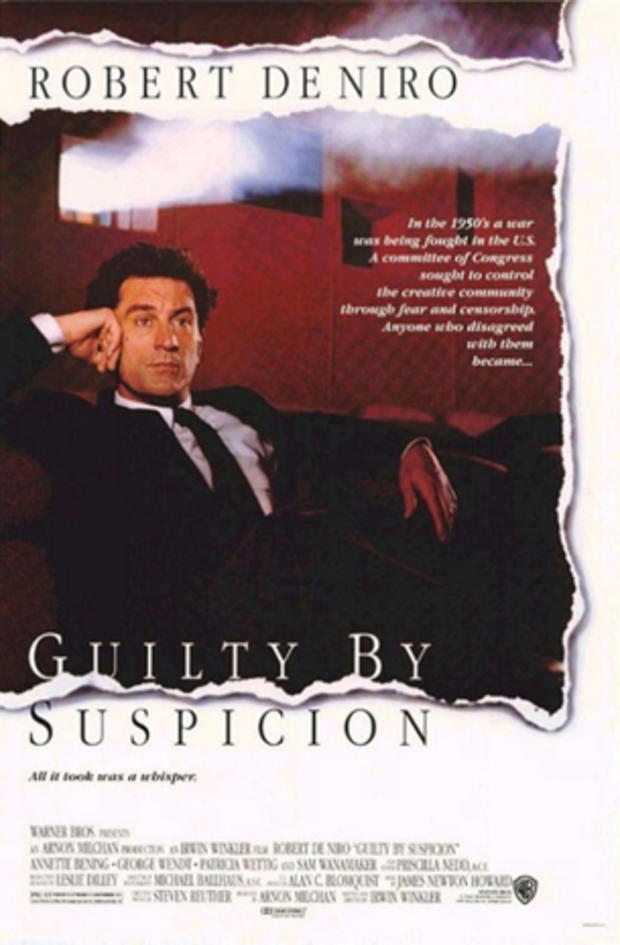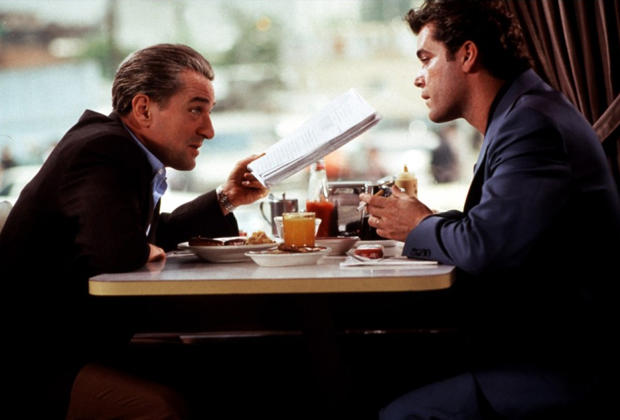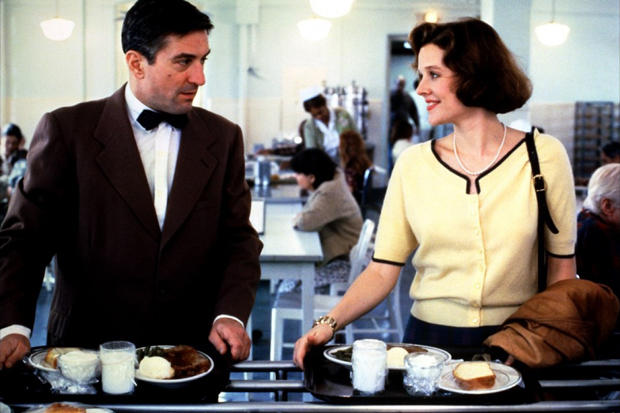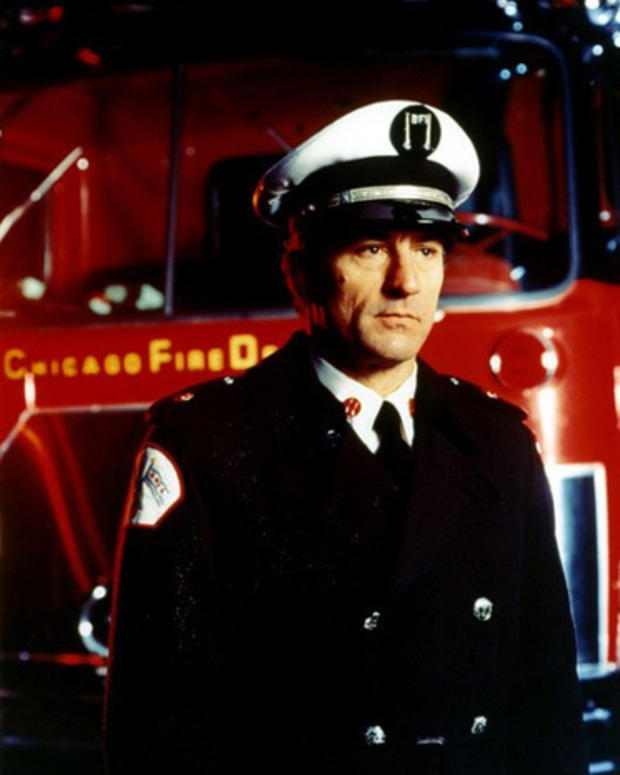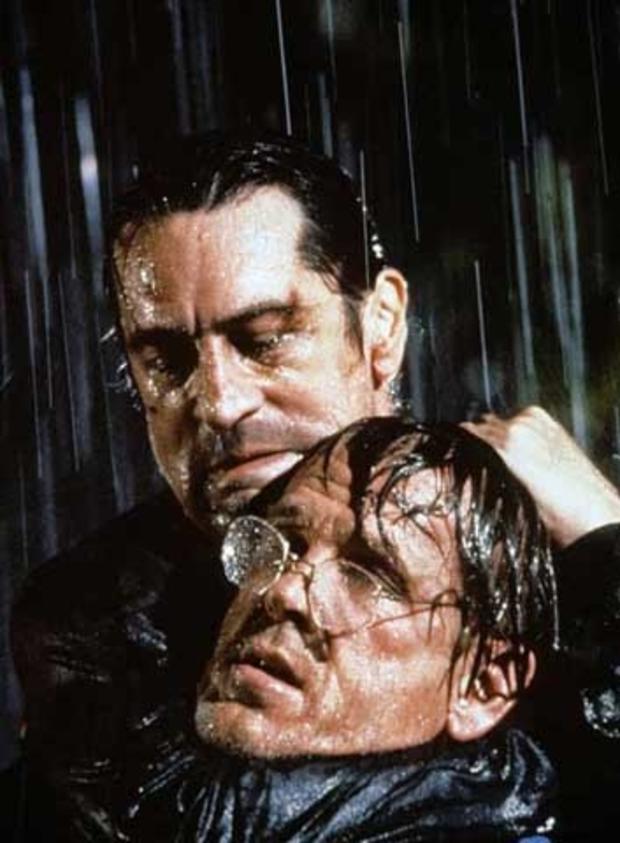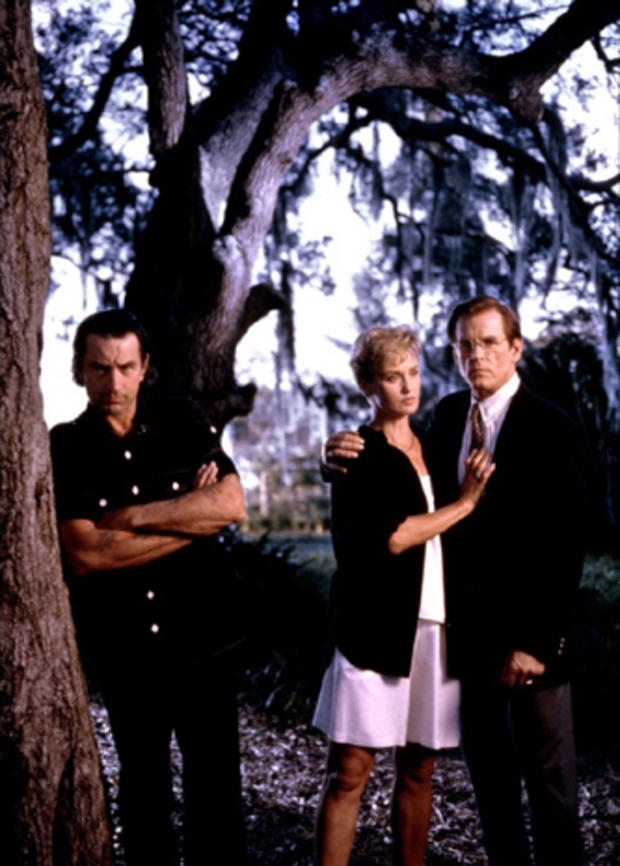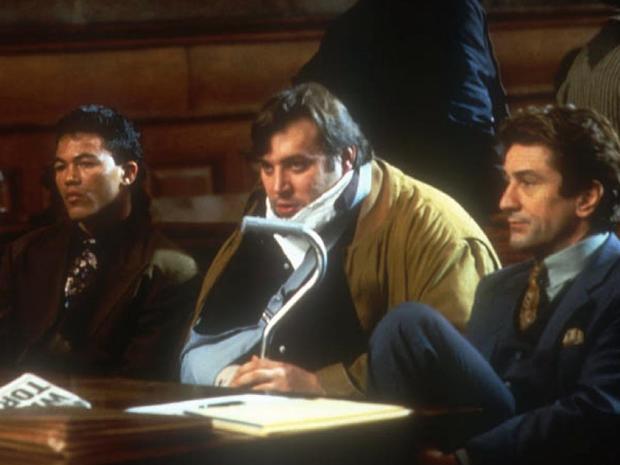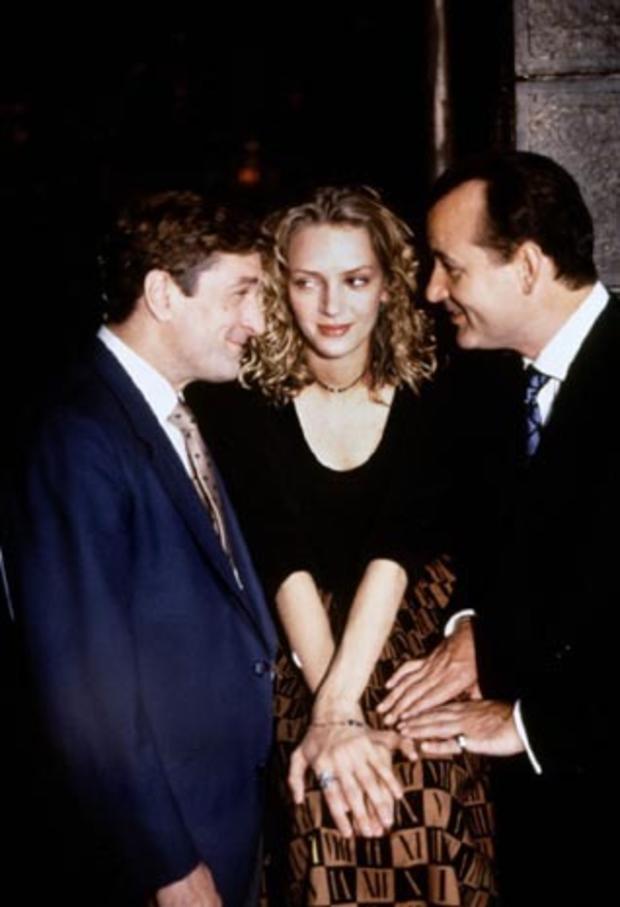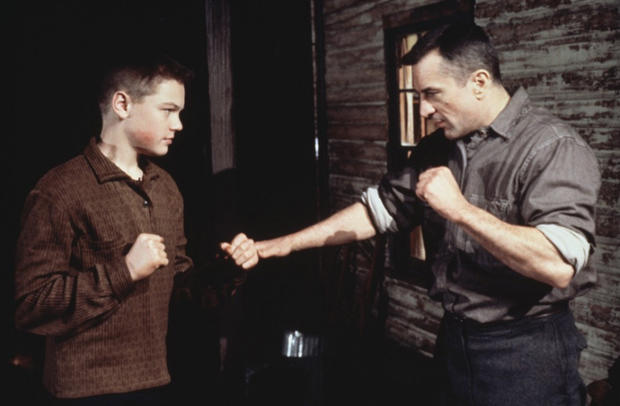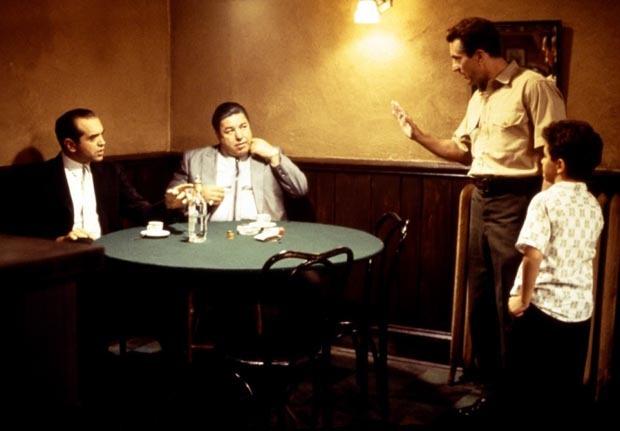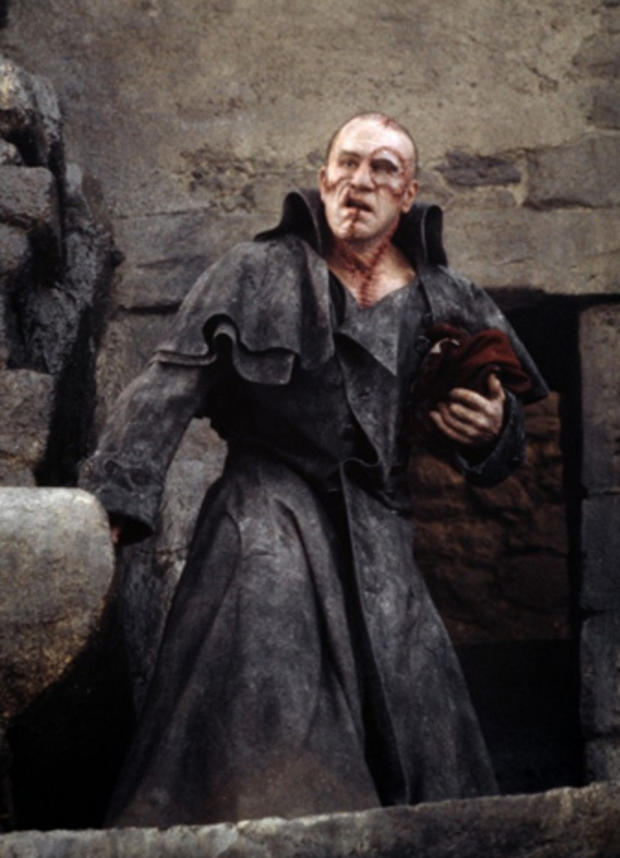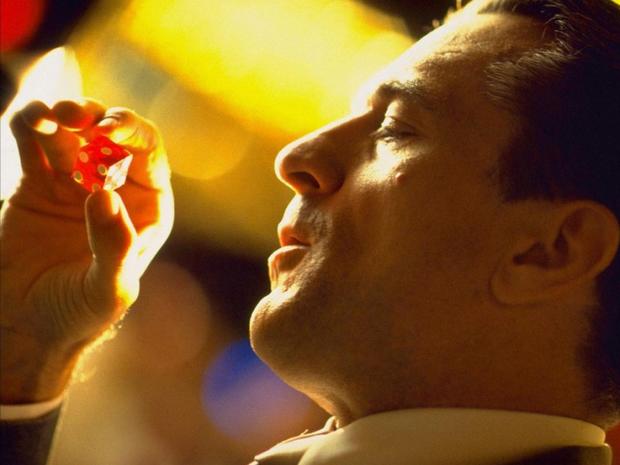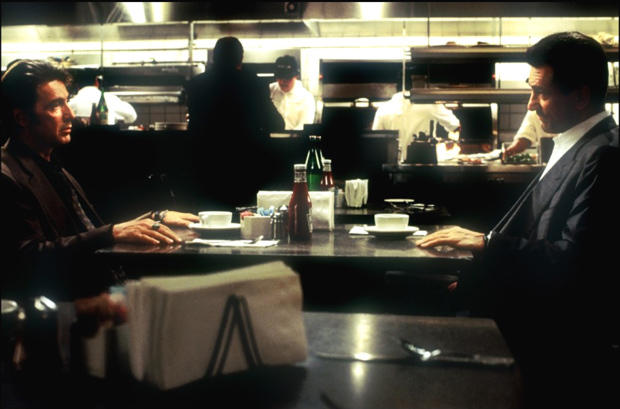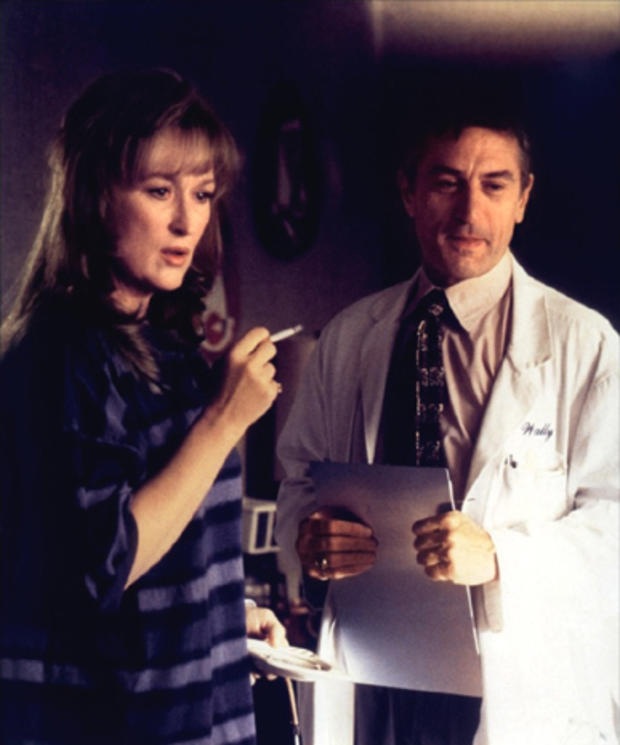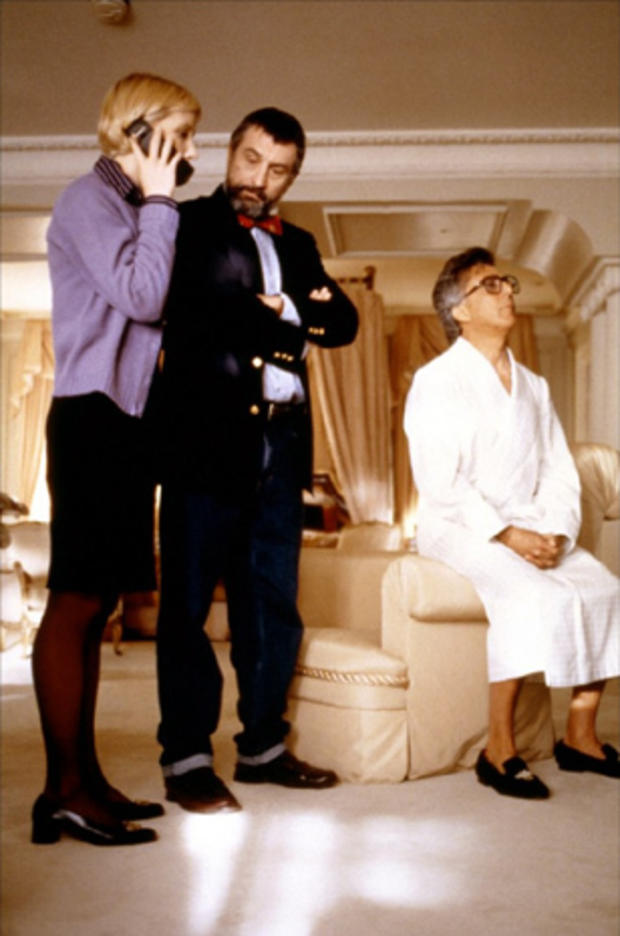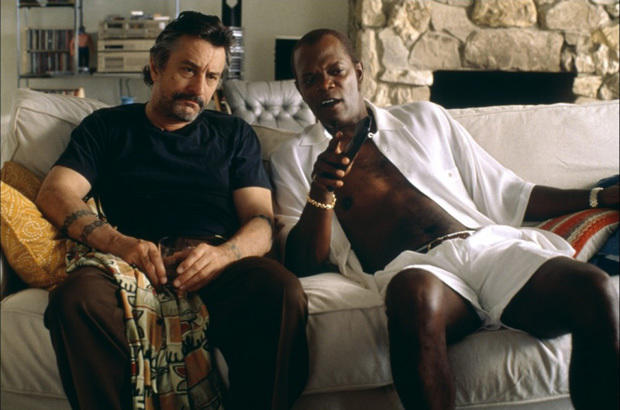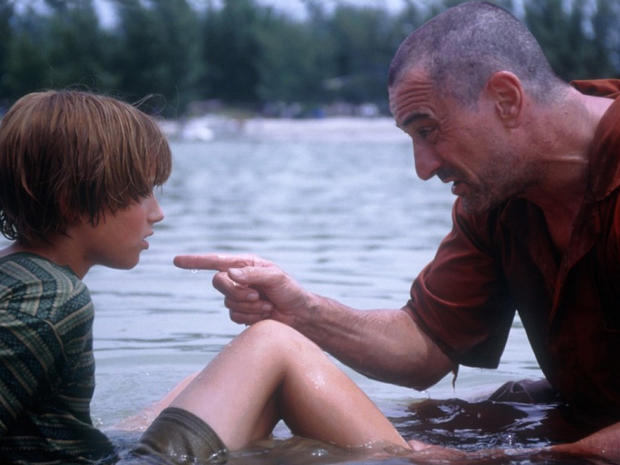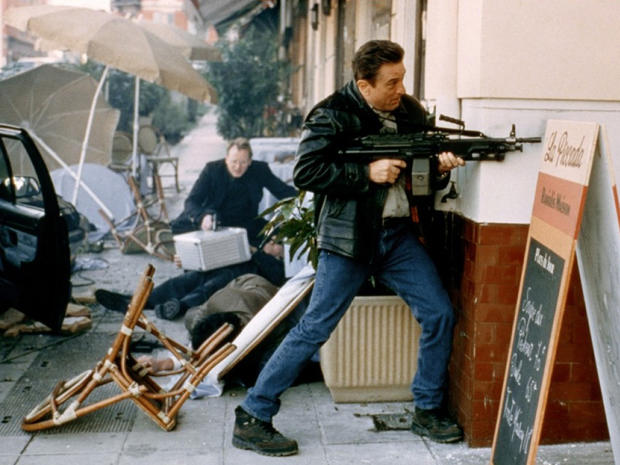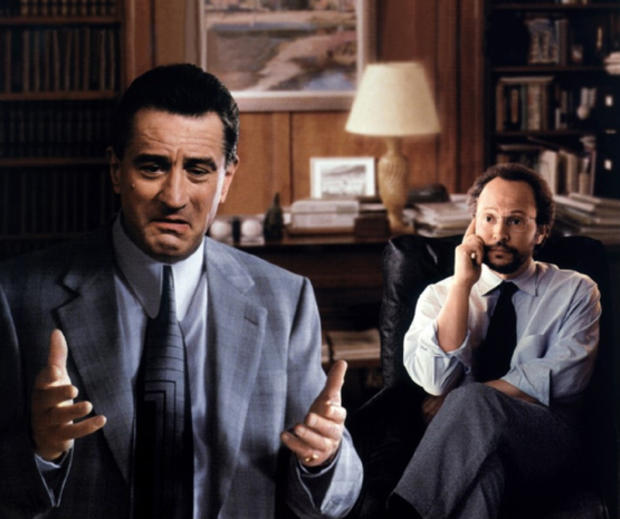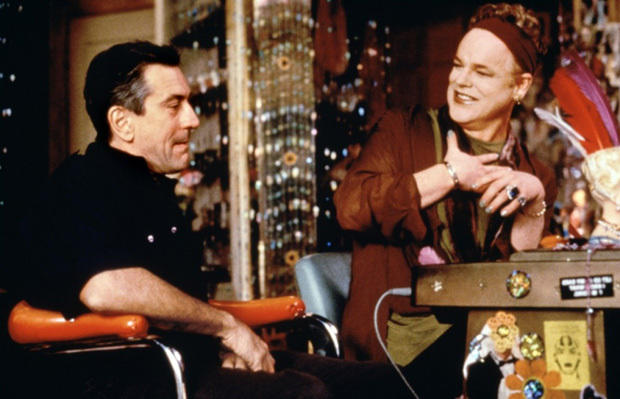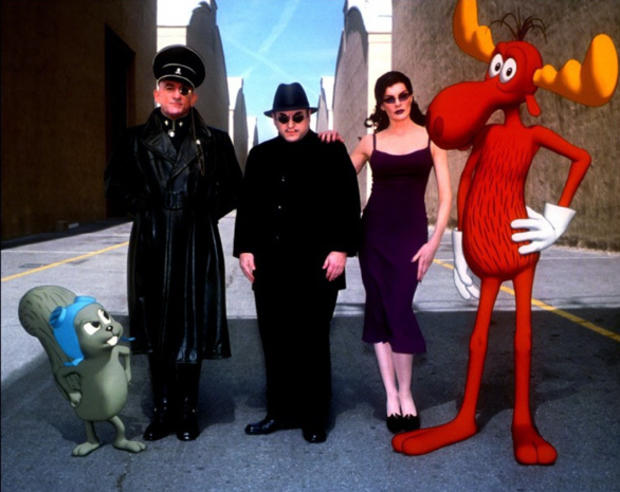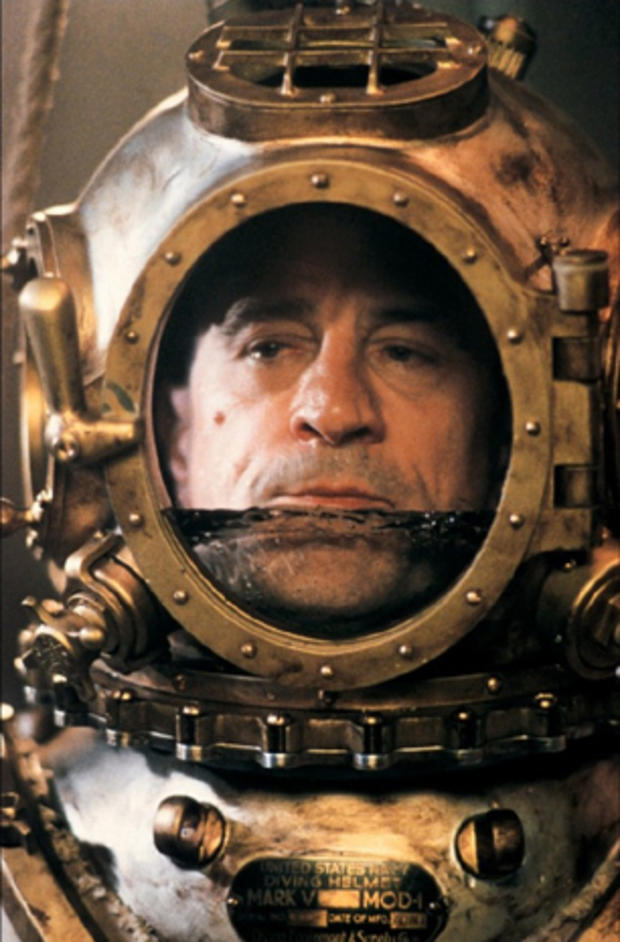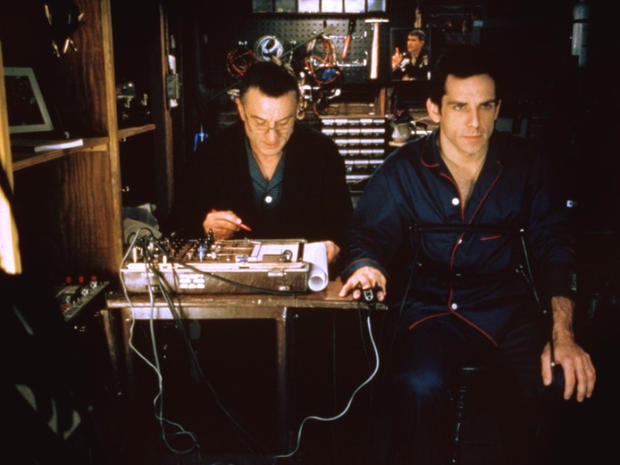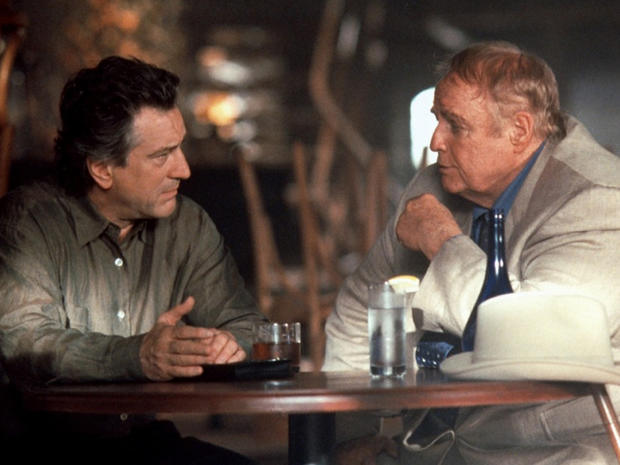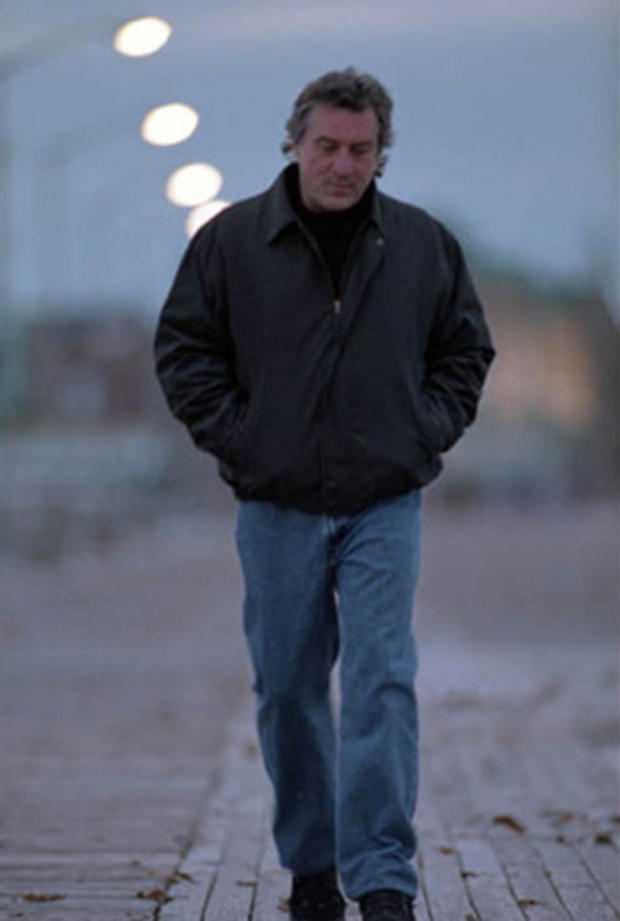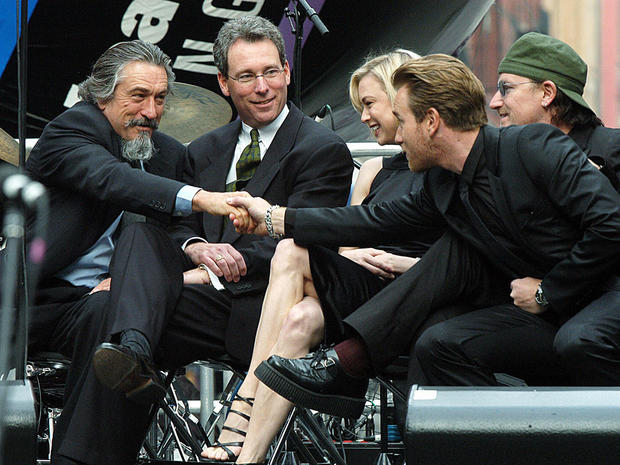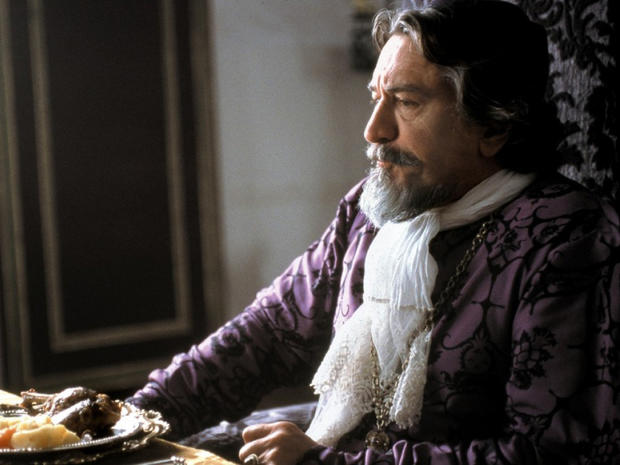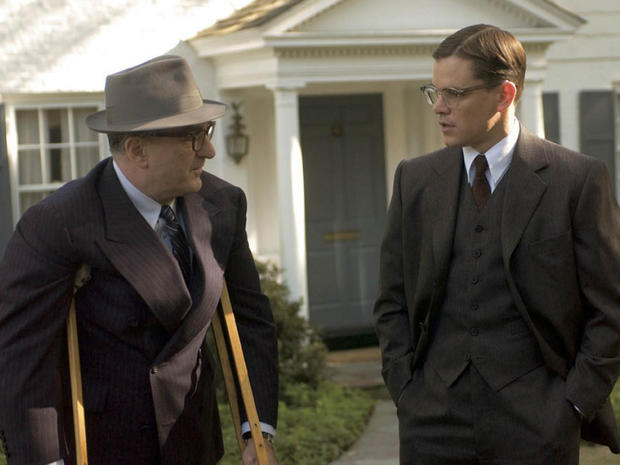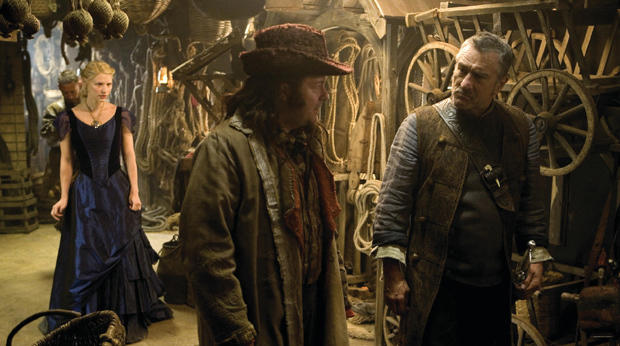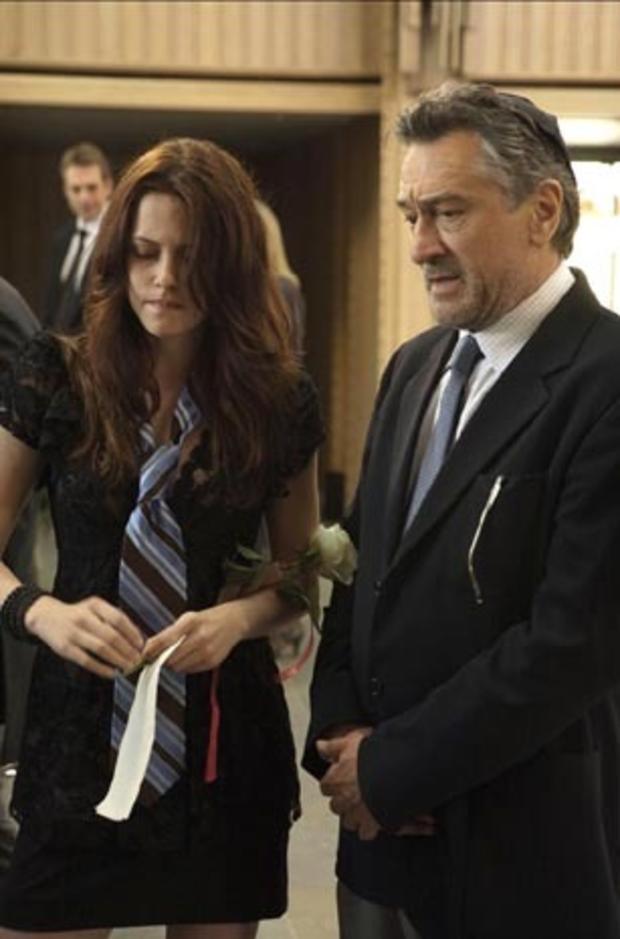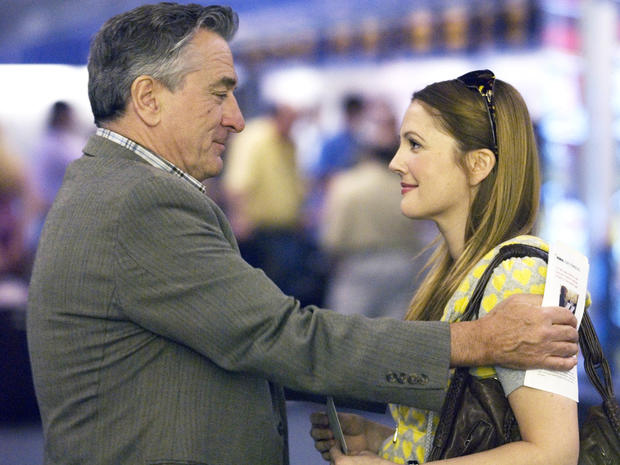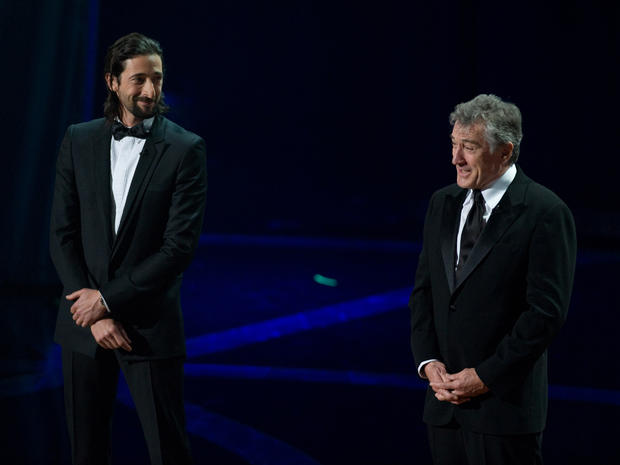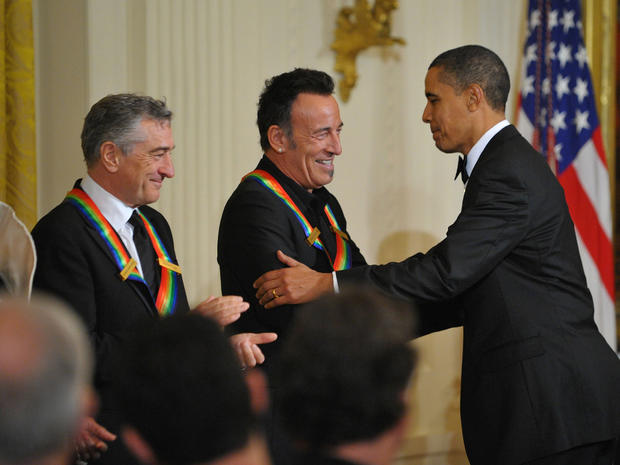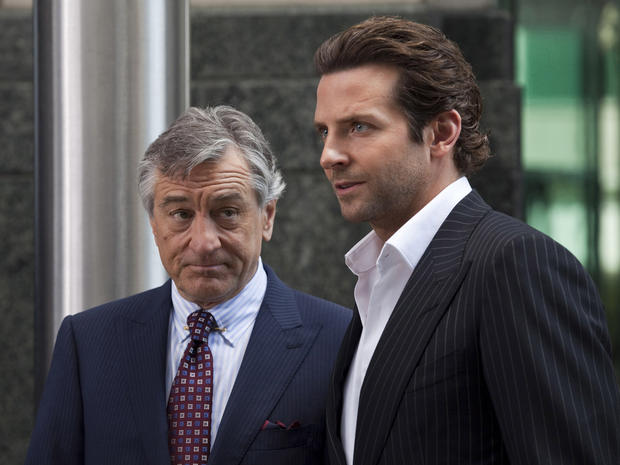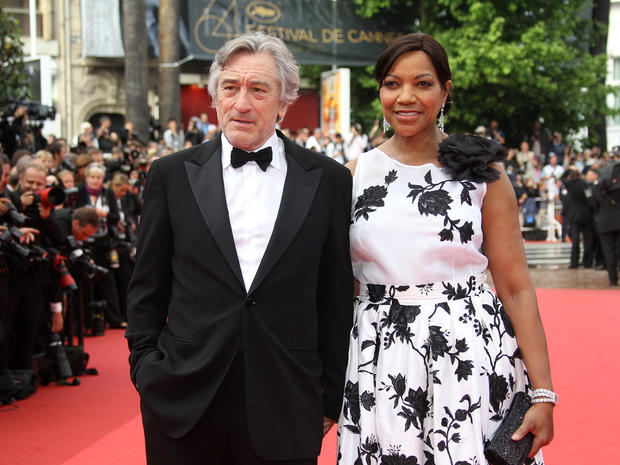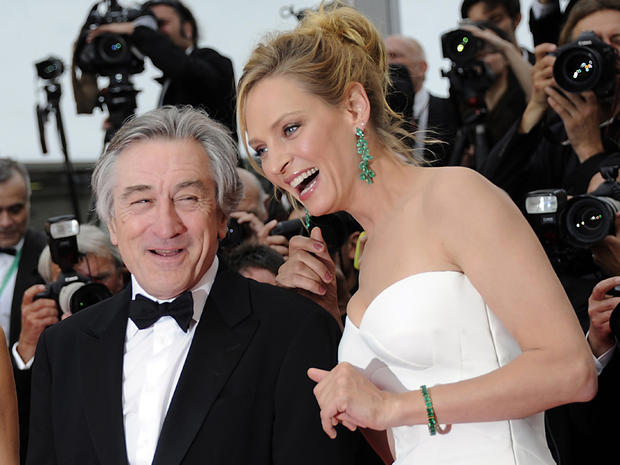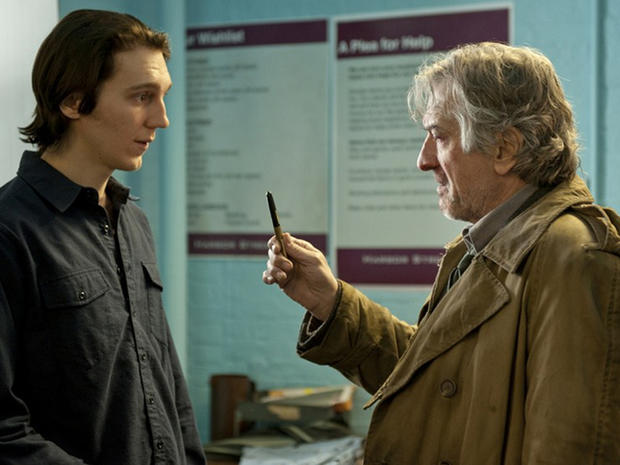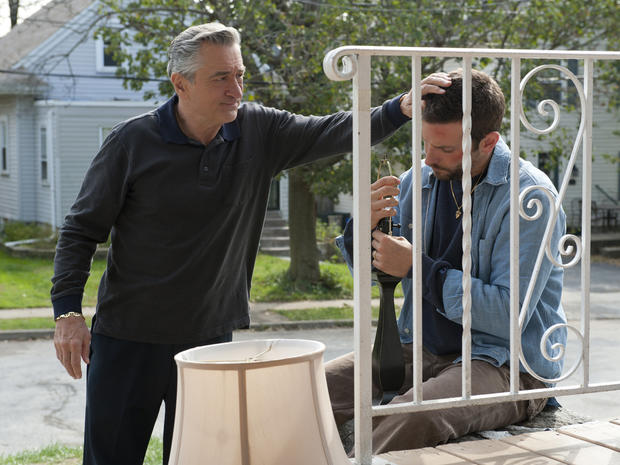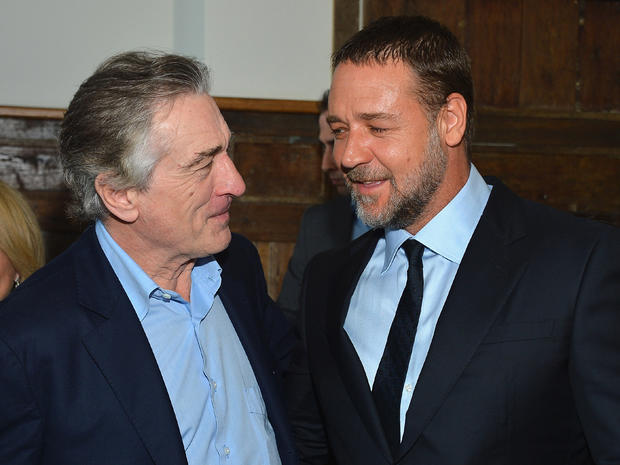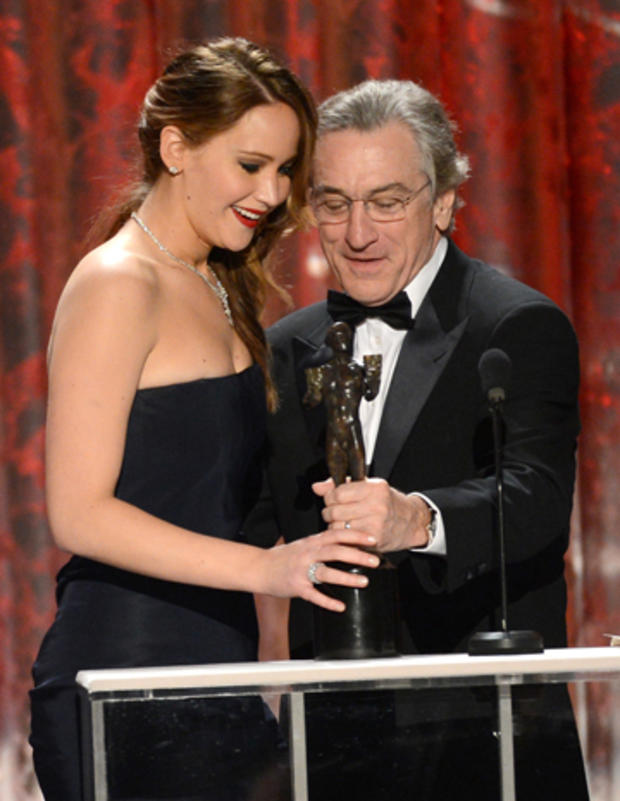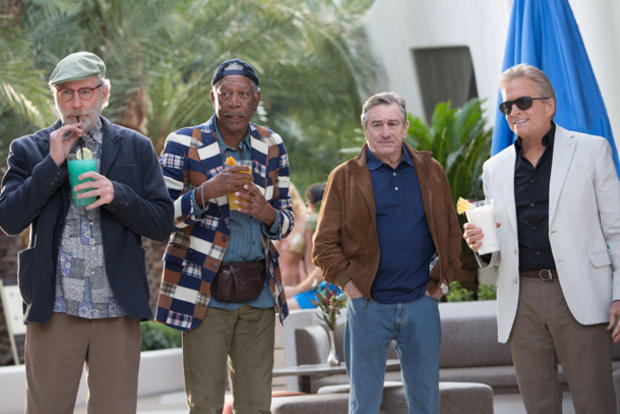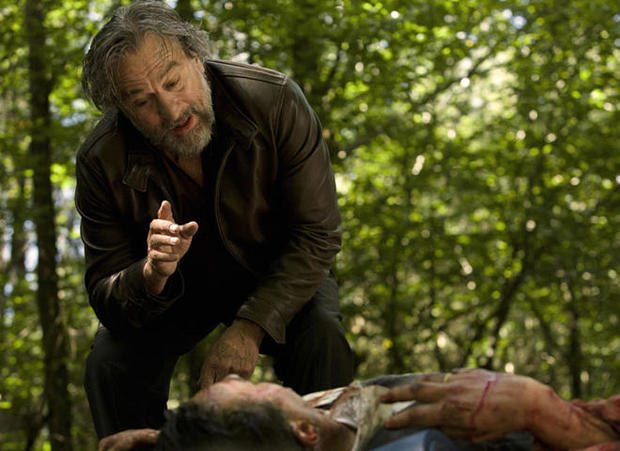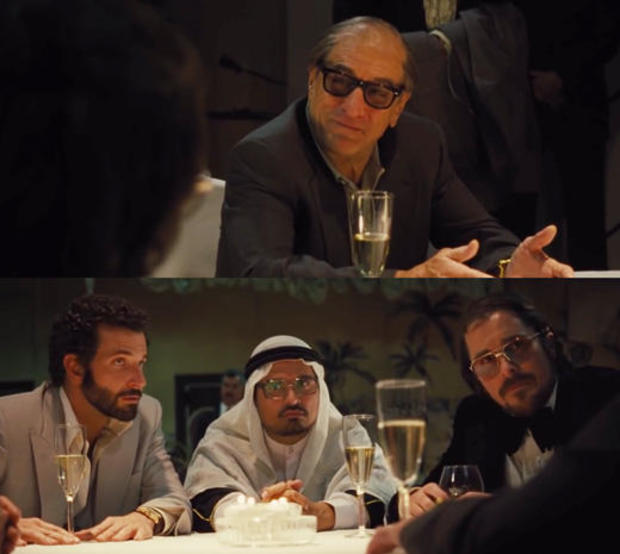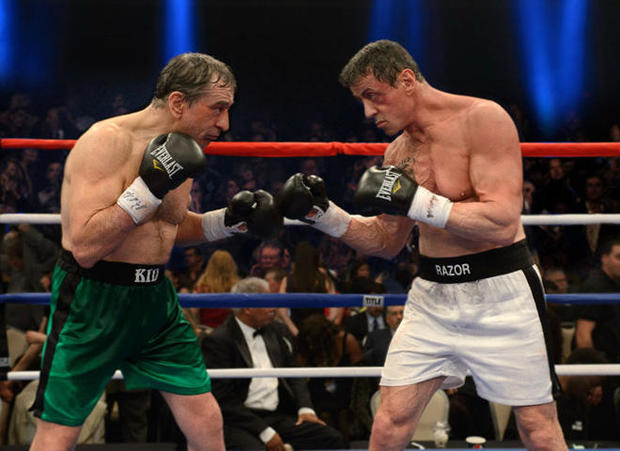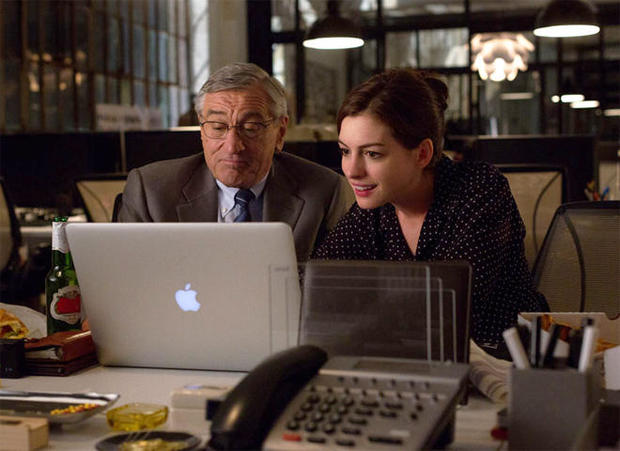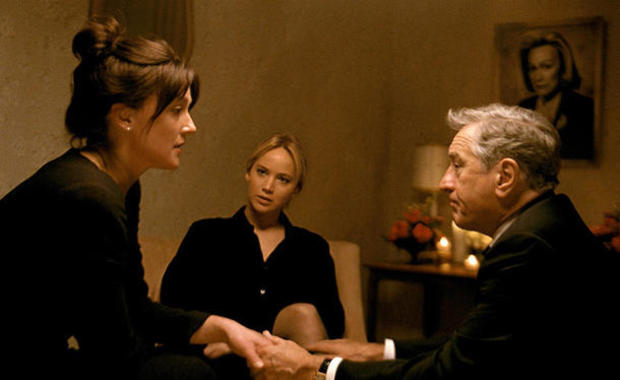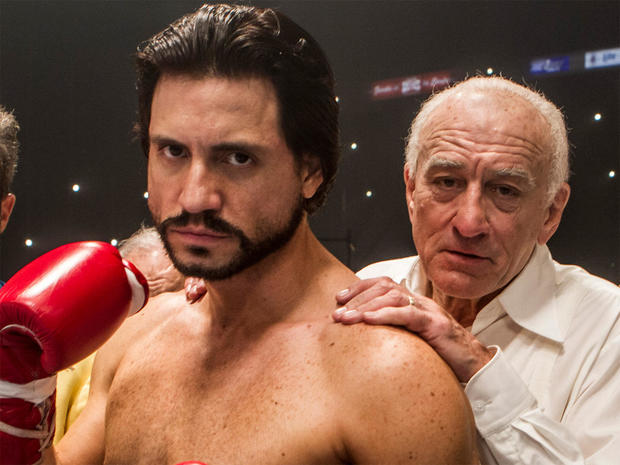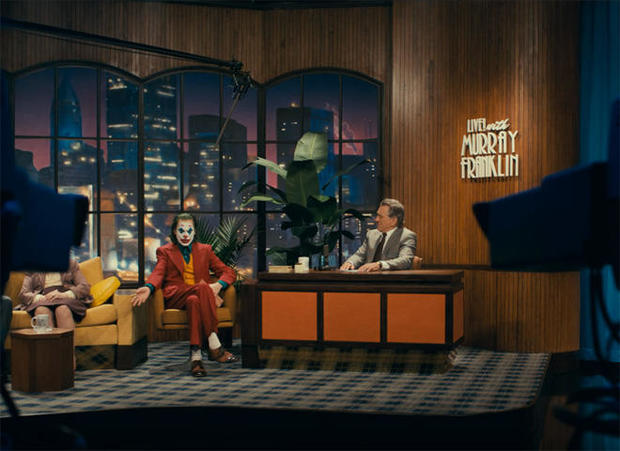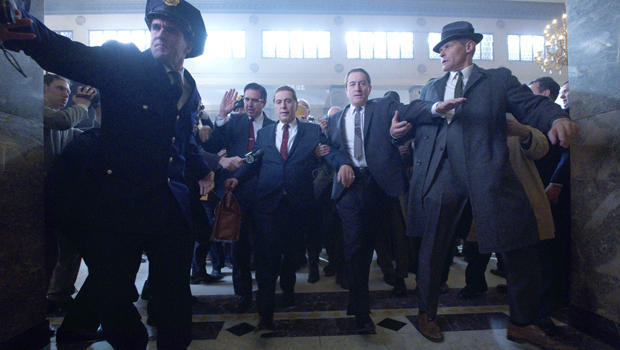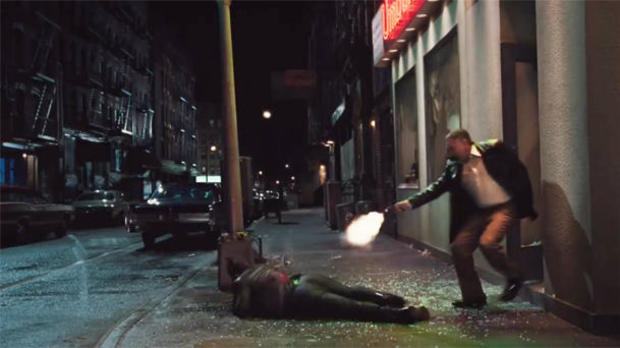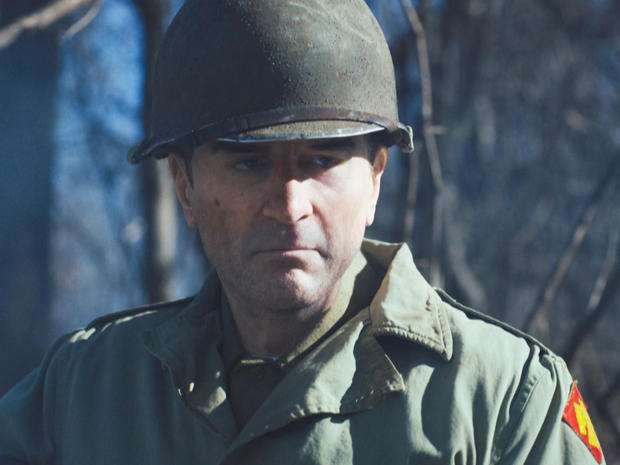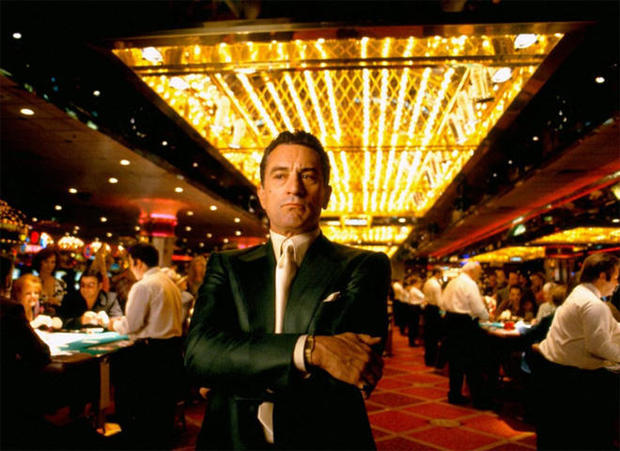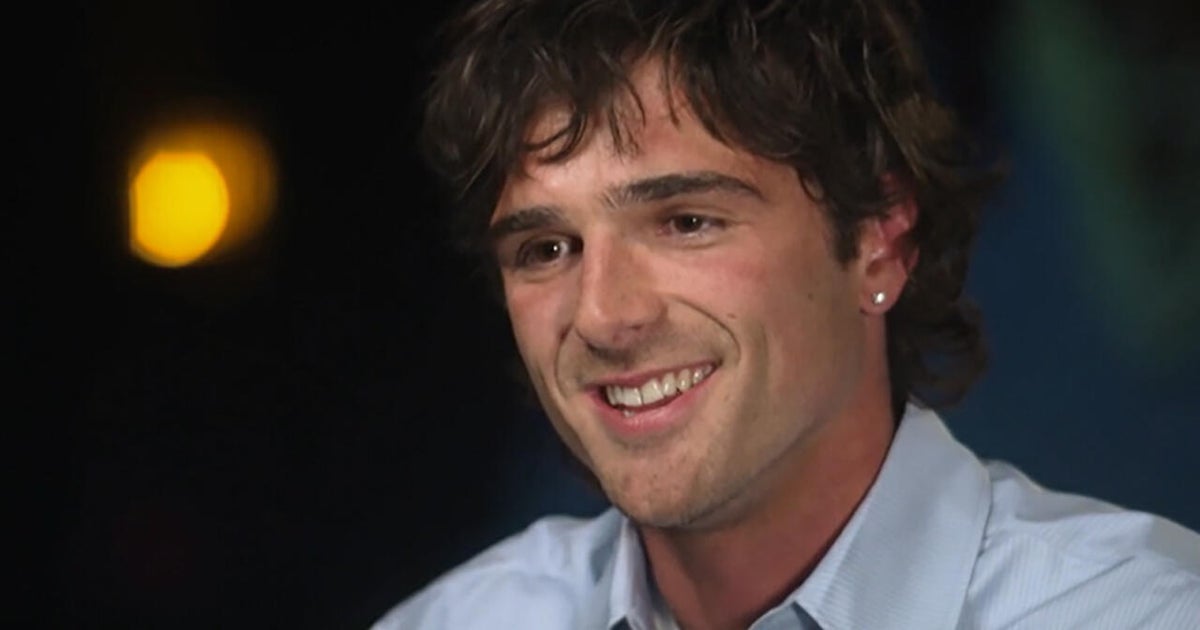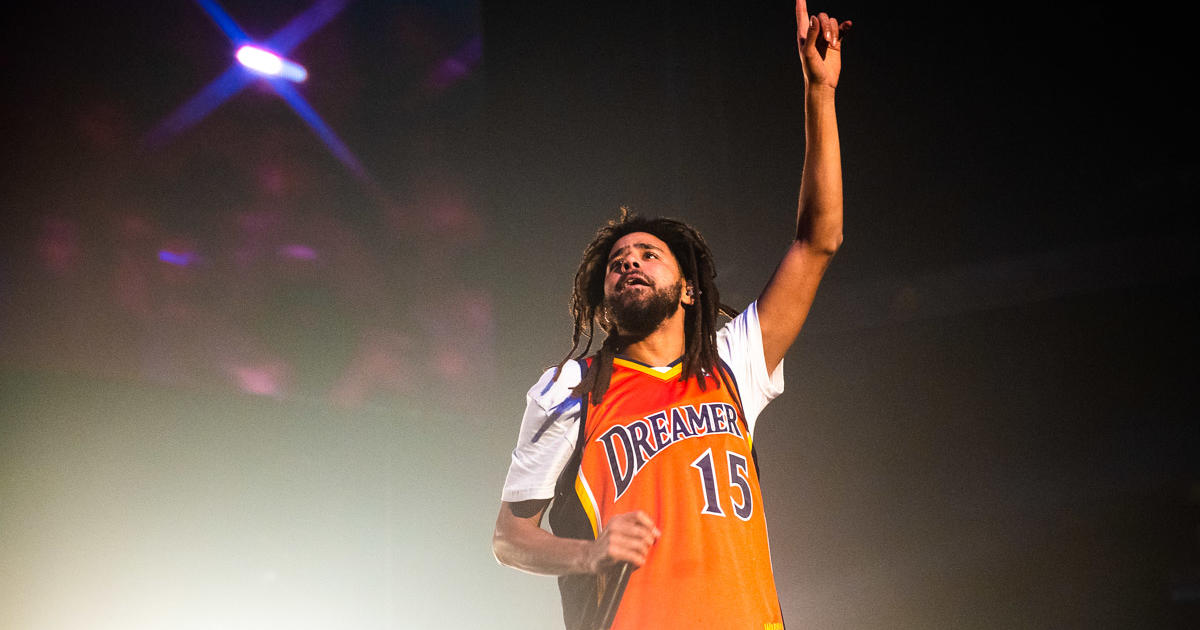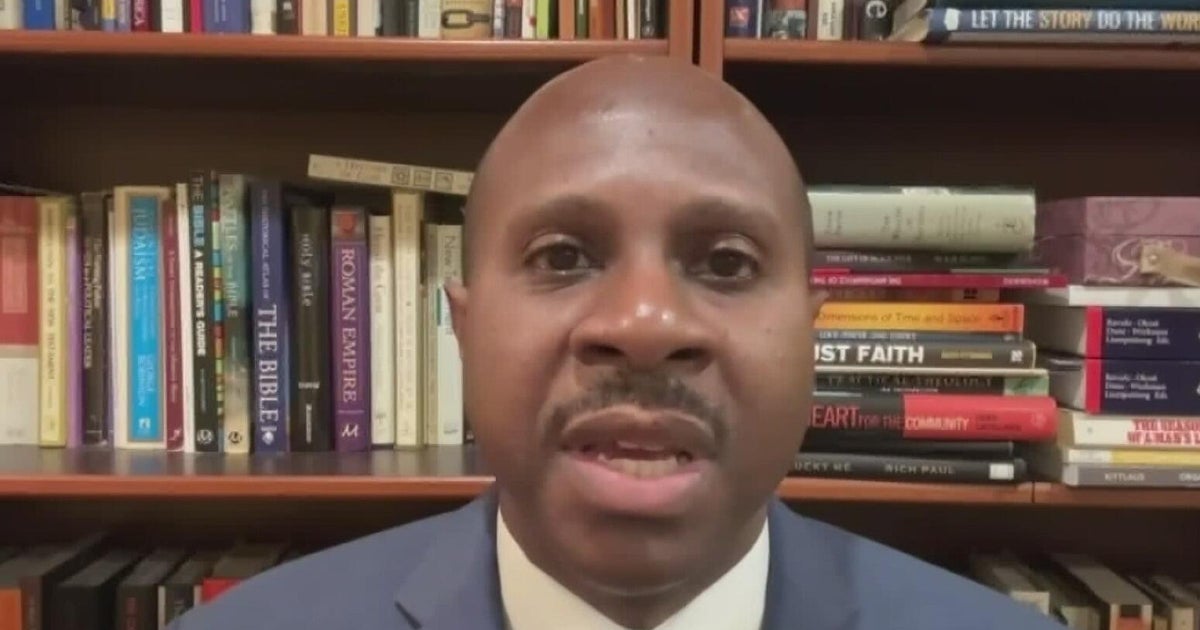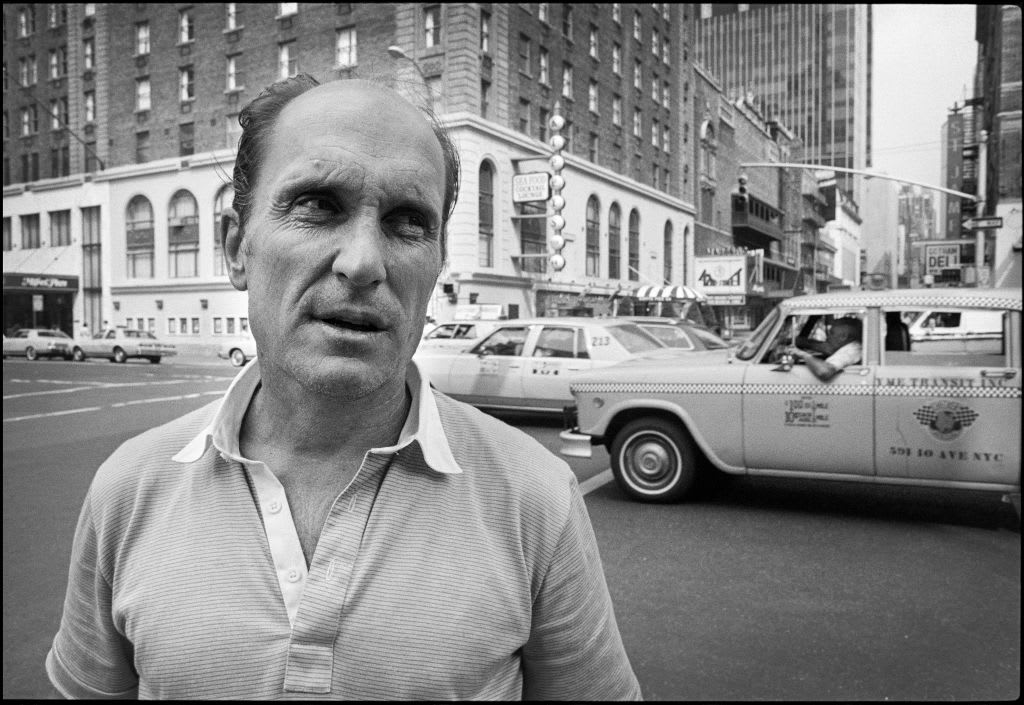The films of Robert De Niro
Actor and co-founder of the Tribeca Film Festival Robert De Niro at the 2010 Doha Tribeca Film Festival, October 30, 2010 in Doha, Qatar.
Born in New York City in 1943 to two accomplished painters, Robert De Niro grew up in Little Italy and was attracted to acting from a very young age. He studied with Stella Adler and Lee Strasberg, and at age 20 made his first movie with director Brian De Palma, "The Wedding Party," which was not released until 1969.
He has since appeared in more than 100 films, winning two Academy Awards, while earning the accolade of the finest actor of his generation.
By CBSNews.com senior producer David Morgan
"Hi, Mom"
One of Robert De Niro’s earliest starring roles was in the comedy “Hi, Mom” (1970), directed by Brian De Palma and co-starring Jennifer Salt.
"Bang the Drum Slowly"
One of Robert De Niro’s most acclaimed performances was as a dying baseball player in “Bang the Drum Slowly” (1973). Michael Moriarty co-starred as the pitcher who tries to conceal his teammate’s struggle against Hodgkin’s Disease.
"Mean Streets"
Harvey Keitel, Amy Robinson and Robert De Niro in "Mean Streets" (1973), Martin Scorsese's electrifying story of New York criminals that put the filmmaker and his stars onto the world cinema map.
Keitel plays Charlie, an ambitious young mobster whose rise is hampered both by his devout Catholicism and his friendship with the flailing young punk Johnny Boy, played by De Niro.
"Mean Streets"
Robert De Niro as Johnny Boy in Scorsese’s “Mean Streets.”
The actor told CBS News’ Lee Cowan that his attraction to the profession may have come in part from his reserve. “Yeah, part of me is shy, I guess,” he said. “You know the old story that actors are shy, then they get behind the character they play, you know? There’s truth to that.”
"The Godfather Part II"
For the 1974 sequel "The Godfather Part II," De Niro stepped into the character created by Marlon Brando in the original "Godfather," a young Vito Corleone, who in the film's flashback sequences is seen slowly building what will become a criminal empire.
A curious piece of trivia: De Niro had auditioned for the role of Sonny Corleone in the original film, and was hired to play "button man" Paulie Gatto, but he asked to be let out of his contract when Al Pacino's role in "The Gang That Couldn't Shoot Straight" became available (because Pacino had been hired to play Michael Corleone). By not playing a character in "The Godfather," De Niro was then free to take over Brando's character in the sequel.
"The Godfather Part II"
Robert De Niro as Vito Corleone, murdering the “Black Hand” mobster Fanucci, in “The Godfather Part II.”
Accepting the Best Supporting Actor Academy Award for De Niro, director Francis Ford Coppola said, “I think this is a very richly-deserved award. I think Robert De Niro is an extraordinary actor, and he is going to enrich films that are made for years to come.”
"Taxi Driver"
De Niro reteamed with Martin Scorsese for one of his most indelible characters, cabbie Travis Bickle in “Taxi Driver” (1976). Written by Paul Schrader, the film was a violent character study of a troubled loner who strives to find a purpose to his life.
The film’s shocking violence and nihilism witnessed or perpetrated by Bickle turned off many, but the film was immediately hailed as a cinematic masterpiece of urban isolation, winning top prize at the Cannes Film Festival.
"Taxi Driver"
Harvey Keitel as the pimp Sport, and Robert De Niro in “Taxi Driver.”
"Taxi Driver"
Director Martin Scorsese portrayed one particularly disturbing passenger in the cab of Robert De Niro’s Travis Bickle in “Taxi Driver.”
"1900"
Dominique Sanda and Robert De Niro in Bernard Bertolucci’s historical epic “1900,” about the political turmoil in Italy in the first decades of the 20th century. The film also starred Donald Sutherland, Gerard Depardieu and Burt Lancaster.
"The Last Tycoon"
Director Elia Kazan (left) directs Ingrid Boulting and Robert De Niro in “The Last Tycoon,” a Hollywood drama based on F. Scott Fitzgerald’s last, uncompleted novel.
"New York, New York"
Liza Minnelli and Robert De Niro in “New York, New York” (1977), a post-war musical drama that Martin Scorsese saw as an escape from the gritty realism of his previous movies. The downer ending didn’t help the picture find an audience, and the film was cut down and re-released.
In 1981 the film was reissued with deleted scenes restored, including for the first time the complete musical number “Happy Endings.”
"The Deer Hunter"
Robert De Niro as a Pennsylvania steel worker who goes off to war in Vietnam, encountering captivity and the deaths of friends, in Michael Cimino’s Oscar-winning drama “The Deer Hunter” (1978). The film co-starred Best Supporting Actor Oscar-winner Christopher Walken, John Cazale, John Savage and Meryl Streep.
"The Deer Hunter"
De Niro in “The Deer Hunter.” The film’s harrowing depiction of a prisoner of war camp and the soldier’s re-assimilation back home were among Hollywood’s first serious instances tackling the experiences of Vietnam War veterans. De Niro received his third Academy Award nomination, for Best Actor.
"Raging Bull"
Martin Scorsese’s “Raging Bull” (1980), about boxer Jake LaMotta, was a meticulously crafted character study of a violent man who could not keep the violence within the boxing ring.
De Niro showed tremendous ability as a fighter in his boxing scenes, and just as realistically gained an enormous amount of weight for scenes depicting LaMotta as an aged, overweight has-been. The performance won him an Oscar for Best Actor.
"Raging Bull"
De Niro told CBS News’ Lee Cowan that the production set aside time in shooting of about three to four months, during which he transformed himself into the older LaMotta, which was not easy.
“It wasn’t. The first 15-20 pounds, you know, you eat and overindulge, to say the least. And then after that, it’s just pure drudgery,” De Niro said.
Academy Awards
From left: Best Actor Oscar-winner Robert De Niro (“Raging Bull”); Best Actress Sissy Spacek (“Coal Miner’s Daughter”); and Ronald L. Schwary and Robert Redford, the producer and director of the Oscar-winner “Ordinary People,” backstage at the Academy Awards in Los Angeles, March 31, 1981.
"True Confessions"
In the murder mystery “True Confessions” (1981), directed by Ulu Grosbard, Robert De Niro played a Los Angeles monsignor caught up in the investigation of a murdered woman. Robert Duvall co-starred as his brother, a homicide detective.
"The King of Comedy"
Robert De Niro’s Rupert Pupkin, a celebrity hound and wanna-be standup comic, fantasizes appearing on the late-night talk show hosted by his idol, Jerry Langford (Jerry Lewis), in Martin Scorsese’s “The King of Comedy” (1983).
"Once Upon a Time in America"
Director Sergio Leone, renowned for his spaghetti Westerns of the 1960s, helmed the epic gangster saga “Once Upon a Time in America” (1984), tracing the lives of New York street toughs as they grow into leaders of criminal syndicates and politics. Co-starring with Robert De Niro was James Woods (right) and Elizabeth McGovern.
"Falling in Love"
Robert De Niro and Meryl Street star as two married New Yorkers who meet and begin a romance in the 1984 drama “Falling in Love.”
"Brazil"
Robert De Niro as heating engineer Harry Tuttle in Terry Gilliam’s dark comedy “Brazil” (1985).
"The Mission"
In Roland Jaffe’s “The Mission” (1986), a story of missionaries in 18th century South America, Robert De Niro plays a mercenary and slave trader who seeks penance as a member of the Jesuit order.
"Angel Heart"
In “Angel Heart” (1987), Mickey Rourke plays a private eye hired by a mysterious client with a Satanic air (Robert De Niro).
"The Untouchables"
For Brian DePalma’s “The Untouchables” (1987), Robert De Niro was memorable as Chicago mob boss Al Capone, who maintained control over the Windy City through bribery and violence, including a deftly-wielded baseball bat.
"Midnight Run"
The action-comedy “Midnight Run” (1988), by writer-director Martin Brest, starred Charles Grodin as an accountant being transported by Robert De Niro’s bounty hunter, all the while being chased by competing interests from the FBI and the mob.
"Stanley & Iris"
Jane Fonda and Robert De Niro starred in the romantic drama, “Stanley & Iris” (1989), directed by Martin Ritt.
"Jacknife"
Robert De Niro and Ed Harris as Vietnam veterans in “Jacknife” (1989), an emotional, low-key drama written by Stephen Metcalfe and directed by David Jones.
"Guilty By Suspicion"
In Irwin Winkler’s drama “Guilty by Suspicion,” set during the years of the Hollywood blacklist, Robert De Niro starred as a director who finds he will only be allowed to work if he implicates colleagues as Communists.
"Goodfellas"
“Goodfellas” (1990), based on on Nicholas Pileggi’s book “Wiseguy,” told the true story of Henry Hill (Ray Liotta), a member of New York’s Lucchese crime family who was involved in the 1978 Lufthansa heist that netted about $5 million. Hill ultimately turned state’s evidence against Jimmy Conway (De Niro), thus ignoring the mob’s creed: “Never rat on your friends. Hill’s prize? The federal witness protection program.
"Awakenings"
Based on a memoir by Dr. Oliver Sachs, “Awakenings” (1990) is the true story of a neurologist’s successful treatment of patients who are “awakened” after years spent in a catatonic state. Robert De Niro earned an Academy Award nomination as a man who is given a new lease on life, and then fights against the restrictions of his hospital confinement.
"Backdraft"
Robert De Niro as an arson investigator in Ron Howard’s “Backdraft” (1991).
"Cape Fear"
Robert De Niro as Max Cady, an ex-con who returns to exact revenge on Sam Bowden (Nick Nolte), the lawyer he holds responsible for his imprisonment years earlier, in Martin Scorsese’s 1991 remake of the thriller “Cape Fear.”
"Cape Fear"
The cast of “Cape Fear”: Robert De Niro, Jessica Lange and Nick Nolte.
Although De Niro has portrayed a wide spectrum of personalities on screen, he is most acclaimed for his work with Scorsese. De Niro’s portrayal of Max Cady drew comparisons to their earlier collaborations, particularly Travis Bickle from “Taxi Driver.” But Cady does not stand apart from others, pretending to be unaffected by the horror and degradation that surrounds him, something on which Bickle prided himself.
“There’s no doubt De Niro and I are attracted to similar characters that we’ve dealt with before,” Scorsese told David Morgan. “They’re similar -- they’re not the same. There’re different angles in each one. It’s almost like trying to find out how many more sides you can find to a character like Travis or Max, or Jake LaMotta, or Jimmy Doyle.”
"Night and the City"
In the 1992 remake of Jules Dassin’s “Night and the City,” Robert De Niro played Harry Fabian, a lawyer of little repute who seeks to recreate himself as a boxing promoter. His “Rocky”-like quest for success supplants the original’s film noir theme involving a test of one’s moral strength.
Screenwriter Richard Price described Fabian as someone convinced he deserves heretofore elusive success -- that he believes in a sort of Destiny (or at least a payback), but it is a selfish Destiny, one that merely suits himself.
“The character De Niro plays is very different than the character he plays in ‘Mad Dog and Glory,” said Price, who also wrote that 1993 film. “In ‘Mad Dog’ he plays a guy who’s a loner and introverted, kind of plodding and methodical; Here he’s basically playing a mouse who thinks he’s a cat. It’s like a very different metabolism.”
"Mad Dog and Glory"
Robert De Niro, Uma Thurman and Bill Murray starred in the comedy-drama “Mad Dog and Glory” (1993), about a Chicago police officer and a mob boss, and the young lady caught between them.
"This Boy's Life"
Leonardo diCaprio and Robert De Niro starred in “This Boy’s Life” (1993), based on the memoir by Tobias Wolff, about a young boy and his abusive prospective stepfather.
"A Bronx Tale"
Robert De Niro’s directorial debut was the 1993 “A Bronx Tale,” adapted from Chazz Palminteri’s one-man stage play about growing up under the sway of a local underworld figure in New York City. De Niro played a bus driver and father of young Calogero Anello, who is earning tips from Sonny LoSpecchio (Palminteri), setting up a confrontation between the criminal figure and a concerned dad.
In 1993 De Niro told David Morgan that getting backing for the project might have been easier had he played the mob part, but opted instead for the father. “It’s a good part for me to play, because I’d never done that type of thing; you always expect me to do the part that Chazz is playing.”
He said he has conferred with other actors, like Jack Nicholson and Danny DeVito, who had taken on directing chores, “so I could get a better idea from them about what their problems were, what they were surprised by, or not surprised by. . . . When you’re acting in something, you have to be a little more concentrated in another way. So that adds another kind of pressure.”
"Mary Shelley's Frankenstein"
Following the success of Francis Ford Coppola’s “Bram Stoker’s Dracula,” remakes of horror classics were the rage. Kenneth Branagh directed the 1994 version of “Mary Shelley’s Frankenstein,” in which he starred as the scientist who creates a monster (Robert De Niro). It did not fare well with critics.
"Casino"
Robert De Niro as Sam “Ace” Rothstein, sent by the mob to run its Las Vegas operations, in Martin Scorsese’s 1995 drama “Casino.” The film was based on Nicholas Pileggi’s non-fiction book about Vegas underworld figure Frank Rosenthal, who ran several casinos in the 1970s and 1980s.
"Heat"
Although Michael Mann's crime thriller "Heat" (1995) had many qualities, it was most heralded for its first-ever pairing on-screen of Al Pacino and Robert De Niro. Pacino played a Los Angeles detective on a personal mission to take down the master thief played by De Niro.
HANNA (Pacino): "We're sitting here like a coupla regular fellas. You do what you do. I do what I gotta do. What happens if I am there and I got to put you away? (pause) I won't like it. But, if it's between you and some poor bastard whose wife you're going to make into a widow, brother, you are gonna go down. 'Cause you don't have to be there. You coulda gone and been a... a mailman."
McCAULEY (De Niro): "There's a flip side to that coin. What if you got me boxed in and I gotta put you down? 'Cause no matter what, you will not get in my way. But now that we been face to face, I would not feel good about that. But I won't hesitate. Not for one second."
"Marvin's Room"
Meryl Streep and Robert De Niro starred in the family drama “Marvin’s Room” (1997), which also featured Diane Keaton and Leonardo DiCaprio. It was the third film in which Streep and De Niro appeared together.
"Wag the Dog"
Barry Levinson’s 1997 comedy “Wag the Dog” starred Anne Heche and Robert De Niro as political consultants who hire a Hollywood producer (Dustin Hoffman) to orchestrate a fake war (with Albania!) in order to divert media attention from a looming White House scandal. Hoffman and co-writers Hilary Henkin and David Mamet received Oscar nominations.
"Jackie Brown"
Robert De Niro and Samuel L. Jackson plays former cellmates in Quentin Tarantino’s crime drama “Jackie Brown” (1997), adapted from Elmore Leonard’s “Rum Punch.”
"Great Expectations"
Jeremy James Kissner as young Finn, and Robert De Niro as Arthur Lustig in a contemporary dramatization of Charles Dickens’ “Great Expectations” (1998), transposed to 1990s New York.
"Ronin"
A return to form for suspense director John Frankenheimer, “Ronin” (1998) starred Robert De Niro as the leader of a team of mercenaries paid to retrieve a mysterious package, with no small arsenal getting in their way.
"Analyze This"
Just as Tony Soprano first began spilling his guts to a psychiatrist in the HBO drama "The Sopranos," Robert De Niro played a mobster who seeks help for his panic attacks from Billy Crystal in the comedy "Analyze This" (1999).
Of De Niro's nine Golden Globe nominations, three were in the category of comedy, including "Analyze This," "Midnight Run" and "Meet the Parents."
"Flawless"
Robert De Niro plays a conservative cop and Philip Seymour Hoffman is his drag queen-neighbor in “Flawless” (1999).
"The Adventures of Rocky & Bullwinkle"
The 2000 comedy “The Adventures of Rocky & Bullwinkle” mixed animation with live action in bringing the immortal 1960s cartoon stars to the big screen. Playing the bad guys: Robert De Niro as Fearless Leader, Jason Alexander as Boris Badenov, and Rene Russo as Natasha Fatale.
"Men of Honor"
Robert De Niro as a Navy diver in “Men of Honor” (2000).
"Meet the Parents"
For the younger generation of moviegoers, De Niro is perhaps best known for his role as Jack Byrnes, Ben Stiller’s militant father-in-law in the “Fockers” franchise. At left: De Niro, a retired CIA officer, questions his daughter’s boyfriend in “Meet the Parents.”
De Niro scoffed at critics who lamented such roles were beneath an actor of his stature. “They can criticize whatever and they could be right -- why this, why that. You can’t please everybody all the time, or even part of the time.”
"The Score"
Nearly three decades after they played the same character in different films, Robert De Niro and Marlon Brando appeared together on screen, in “The Score” (2001), about a safecracker hired for a $4 million job.
"City By the Sea"
Directed by Michael Caton-Jones, "City By the Sea" (2002) starred De Niro as a veteran cop who struggles to save his drug-addicted son who is caught in a web of violence. The film also starred James Franco and Frances McDormand.
Tribeca Film Festival
After the 9/11 attacks, Robert De Niro helped found the Tribeca Film Festival as a means to aid the economic and cultural revitalization of Lower Manhattan.
Left: Ewan McGregor shakes hands with Robert De Niro, as Bono (2nd from right), Renee Zellweger, and American Express Vice President John Hayes look on, during opening ceremonies for the Tribeca Film Festival in lower Manhattan, New York, May 6, 2003.
"The Bridge of San Luis Rey"
The 2004 film “The Bridge of San Luis Rey” was the third feature based on Thornton Wilder’s novel about the aftermath of a disaster in the Peruvian mountains. Robert De Niro starred as the Archbishop of Lima, head of a council investigating the victims of the tragedy.
"The Good Shepherd"
Robert De Niro directed the 2006 spy film “The Good Shepherd,” loosely based on true events, about the Central Intelligence Agency’s history of counter-intelligence. De Niro played William “Bill” Sullivan (based on William Donovan). Also starring were Matt Damon, Angelina Jolie, Alec Baldwin, Keir Dullea, Timothy Hutton, William Hurt and Joe Pesci.
"Stardust"
In the romantic fantasy “Stardust” (2007), Claire Danes starred as Yvaine, a beauty conjured from a fallen star. Robert De Niro played Captain Shakespeare, a pirate who helps her in her journey. With Ricky Gervais.
"What Just Happened"
In Barry Levinson’s “What Just Happened” (2008), Robert De Niro starred as a fading Hollywood producer trying to get another film off the ground. At left: De Niro with costar Kristen Stewart.
"Everybody's Fine"
Robert De Niro and Drew Barrymore in the drama “Everybody’s Fine” (2009), about a father whose visits with his children may stir up painful secrets.
Academy Awards
Adrien Brody (left) and Robert De Niro during the presentation of the Academy Award for Best Actor, at the Kodak Theatre in Hollywood, Calif., February 22, 2009.
Kennedy Center Honors
President Barack Obama shakes hands with singer-songwriter Bruce Springsteen, as actor-director-producer Robert De Niro looks on, during a reception for the Kennedy Center Honorees December 6, 2009 in the East Room of the White House in Washington, D.C.
"Limitless"
Robert De Niro starred with Bradley Cooper in the thriller “Limitless,” adapted from Alan Glynn’s “The Dark Fields,” about a young man whose consumption of an experimental drug expands his mind, turning him into a financial wizard -- and a political threat.
Cannes Film Festival
Robert De Niro, president of the jury, poses with his wife Grace Hightower on the red carpet at the 64th Cannes Film Festival, May 14, 2011 in Cannes.
Cannes Film Festival
Actor and president of the jury Robert De Niro and actress Uma Thurman pose on the red carpet before the opening ceremony and the screening of “Midnight in Paris,” at the 64th Cannes Film Festival on May 11, 2011 in Cannes. De Niro and Thurman co-starred in “Mad Dog and Glory.”
"Being Flynn"
Paul Dano and Robert De Niro star as a young man reunited with his father, a delusional, once-promising writer, in Paul Weitz’s “Being Flynn” (2012), based on Nick Flynn’s memoir.
"Silver Linings Playbook"
Robert De Niro and Bradley Cooper were re-teamed in David O. Russell’s “Silver Linings Playbook,” about a father’s efforts to cope with his emotionally disturbed son, newly-released from a mental institution.
De Niro and Cooper both received Academy Award nominations for their performances, as did costars Jennifer Lawrence and Jacki Weaver.
AACTA International Awards
Actor Robert De Niro and Russell Crowe attend the Australian Academy Of Cinema And Television Arts’ 2nd AACTA International Awards, at Soho House in West Hollywood, Calif., January 26, 2013.
Screen Actors Guild Awards
Robert De Niro, right, presents Jennifer Lawrence with the Screen Actors Guild Award for Best Actress for “Silver Linings Playbook,” onstage during the 19th Annual SAG Awards, at The Shrine Auditorium on Jan. 27, 2013, in Los Angeles.
"Last Vegas"
Kevin Kline, Morgan Freeman, Robert De Niro and Michael Douglas sow some still-ripe oats, as a quartet of seniors who head to Las Vegas for a bachelor party in the comedy, “Last Vegas” (2013).
"The Family"
Robert De Niro is the pater familias of a mob clan relocated to France under the witness protection program, who demonstrates that old habits die hard, in Luc Besson’s 2013 comedy, “The Family.”
"American Hustle"
When you bring a fake Arab to an FBI sting operation, make sure your target isn’t fluent in Arabic. That’s one of the takeaways from David O. Russell’s true-life dark comedy, “American Hustle” (2013), starring Bradley Cooper, Michael Peña, Christian Bale, and - in an uncredited role - Robert De Niro.
"Grudge Match"
Former rivals in the ring are brought together for a years-in-the-making rematch in the comedy “Grudge Match” (2013). Robert De Niro and Sylvester Stallone - both veterans of boxing films - had also appeared together in the 1997 crime drama, “Cop Land.”
"The Intern"
In the Nancy Meyers comedy “The Intern” (2015), Robert De Niro brings some hard-won experience (and coffee!) to an e-commerce startup run by Anne Hathaway.
"Joy"
In “Joy” (2015), David O. Russell’s biopic of Miracle Mop entrepreneur Joy Mangano, Elisabeth Röhm, Jennifer Lawrence and Robert De Niro are members of a somewhat dysfunctional family.
"Hands of Stone"
Edgar Ramírez as boxer Roberto Durán and Robert De Niro as trainer Ray Arcel in “Hands of Stone.”
When asked why the sport of boxing resonates so much in movies, De Niro told “CBS This Morning,” “It’s an ultimate match between two people. Nothing is going to go past that.
“But, I was interested -- it wasn’t so much the fighter thing. Of course, Durán, his story is he’s a great fighter. I just happened to have known him during that period also, spent a little time together during the no mas period, before that. I like the story. The father/son-type thing with Edgar Ramirez and that relationship, I think, is very important.”
"Joker"
In "Joker" (2019), Robert De Niro played late-night TV host Murray Franklin, whose monologue and taunts attacking wannabe standup comic Arthur Fleck (Joaquin Phoenix) triggers Fleck during an appearance on Franklin's show.
"The Irishman"
In 2019 De Niro reteamed with Scorsese, Al Pacino and Joe Pesci for the real-life mob epic "The Irishman," adapted from Charles Brandt's 2004 bestseller, "I Heard You Paint Houses." De Niro played Frank Sheeran, a hit man who got in close with the controversial leader of the Teamsters Union, Jimmy Hoffa.
"The Irishman"
Sheeran (Robert De Niro) assassinates mob boss "Crazy Joe" Gallo (Sebastian Maniscalco) at Umberto's Clam House in New York City, in "The Irishman."
"The Irishman"
The movie makes substantial use of CGI effects as part of a "de-aging" process that allows its lead actors' performances to span decades. De Niro himself is seen from age 20 (killing German soldiers in World War II Italy) to his 80s.
"I used to joke, it'll add 30 years to my career!" De Niro laughed.
"Casino"
In 2013 De Niro told CBS News' Lee Cowan that his success came down to luck: "I'm lucky that I have whatever I had that makes me have a successful career, if you will."
"It's got to be a little more than luck," said Cowan, "because the amount of work that you would put into characters ... "
"Well, then I'm lucky I have the drive to do the work. But you're always lucky."
By CBSNews.com senior producer David Morgan
